

UNIVERSITY AND COLLEGE COURSES SRUC

SRUC
SRUC is a specialist institution offering college and university level courses, contributing to the growth of a natural economy fuelled by the responsible use of the world’s natural resources: people, land, energy, water, animals and plants. In this, we are experts.
We focus on solving the global challenges facing the planet, including climate change, biodiversity and access to nutritious food and clean water. By focusing on the sustainability of our natural resources, SRUC will strive to make a world of difference: delivering economic, social and environmental benefits for all, locally across Scotland, the UK, and beyond.
Whether you are passionate about business, science, plants, animals, sustainability, the environment, or just the great outdoors, you will find courses at SRUC tailored to meet the needs of a whole range of industries. Issues such as environmental impact and sustainability have an effect on all our lives and are of importance whatever your ambitions.
SRUC’s courses encompass the innovative science that underpins land-based and rural industries, considering their interactions with and support for the surrounding environment, as well as the businesses that depend on them. This includes a wide range of subjects, from agriculture and business to veterinary and zoonoses, and a huge variety of relevant topics in between.
• A choice of campus locations
• Levels of study to suit all qualifications and ambition
• Study pathways enabling your progression
• Specialist resources; access to first-rate and national facilities
• Excellent employment prospects in stable and growing industries
• Industry-leading expertise, research and knowledge
• Practical skills delivered in class and through site visits, case studies and field trips
Open Days are a great opportunity for you to get a feel for the campus and course. We offer in-person as well as online open events; both offer you the chance to hear from course tutors and find out more about our courses.
Find out why studying with us will give you the skills and knowledge to help you progress along your chosen career path, hear from students and Student Ambassadors, and ask any questions of our teaching and support teams.

Accessibility
Dates for our next Open Day events can be found on our website:
www.sruc.ac.uk/opendays
Our intention is to be as inclusive as possible. We will make reasonable adjustments to support attendance at Open Days and provide access to Open Day materials after an event, including the use of captioning and BSL translation. If there is an adjustment that would improve your experience of an Open Day event or related materials please contact us on study@sruc.ac.uk. You can find out more about how we're making our digital content accessible at: www.sruc.ac.uk/connect/about-sruc/policiescompliance/compliance/accessibility


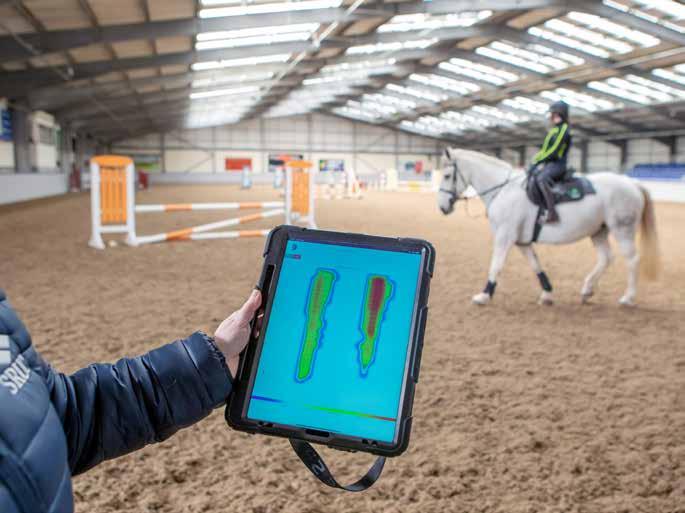
EQUINE
The Equine sector continues to grow year on year, and there has never been a better time to study in this field. SRUC’s qualifications in Equine Science and Horse Care prepare you for a wide range of career opportunities in the sector.
SRUC has a unique blend of hands-on, skills-based learning combined with a classroom led theoretical approach. This methodology produces “ready to work” students who are able to make an immediate impact in the workplace. Our students always stress the depth of knowledge of staff and diversity of learning that takes place on our Equine courses. A high proportion of time is spent on practical tasks in the yard, and students are fully involved in the care and exercising of the horses, to support their classroom-based learning.
Our Oatridge Campus is home to the Scottish National Equestrian Centre (SNEC), which has gained a reputation internationally as a prestigious venue
in the equine sector. We also teach horse care courses at other campuses, offering great local study options and progression opportunities.
Horse Care courses (including the specialist Racehorse Care course) offer you a practical foundation in the subject; a great platform from which to progress either to work within the industry or continue your studies. Our Certificate, Diploma, and BSc/BSc (Hons) Equine Science & Management degree, the only course of its kind in Scotland, introduce more theoretical knowledge and transferable skills, equipping you to make an effective contribution to the varied and vibrant equine industry.
£5b
The British Equestrian Trade Association value the UK Equestrian industry at £5 billion.
The UK has one of the highest quality equine industries in the world, and is internationally recognised as the leading source of equine expertise.
Equine Business Association
850,000
There are around 850,000 horses in the UK.

CAREERS
The Equine sector is truly massive and has huge diversity in its employment opportunities. Examples are:
• RIDING INSTRUCTOR
• COACH
• COMPETITION MANAGER
• LIVERY YARD GROOM
• RACING YARD GROOM
• STUD ASSISTANT
• YARD MANAGER
• EQUESTRIAN SALES
• EQUINE NUTRITION
• ADVISER
There is also a wide variety of employment opportunities in the Horse Racing and Tourism sectors.
USEFUL LINKS
Find out more about our courses direct from our students and staff: www.sruc.ac.uk/experience
Find out more about courses related to Equine Studies on our website: www.sruc.ac.uk/equine
You might also be interested in learning more about SRUC’s courses in Animal Care, Veterinary, or Animal Sciences.


ORLA DREELAN HND Equine Studies

I really enjoyed anatomy and physiology as it gave me a thorough understanding of the horse’s body.
Orla chose to study Equine Studies at SRUC because she felt it would provide her with the knowledge and experience that she wouldn’t necessarily gain by going straight into a working role within the equine industry.
Orla says : “I enjoy the balance of science and business. I really enjoyed anatomy and physiology as it gave me a thorough understanding of the horse’s body and the impact different factors have on it. I liked the fact that there was a college close to me and that I didn’t have to move away to study. I prefer SRUC as it has like-minded people to me.”
“My biggest highlight has been the practical and theoretical lectures every week. This included riding
and lunging which tied together our theory-based learning with hands on experiences.”
“I am looking to continue to progress through my British Horse Society coaching exams and then gain more experience working at my family business. I would also like to gain more experience in equine rehabilitation. I feel that this course is invaluable and has equipped me with so much more than I could gain from a working environment. It really gives you a wellrounded view and an advantage in the equine industry.”
SRUC:
ANIMAL CARE AND EQUINE FACILITIES
THE SCOTTISH NATIONAL EQUESTRIAN CENTRE
SRUC’s Oatridge Campus is home to the Scottish National Equestrian Centre (SNEC).
SNEC is a state of the art national equestrian facility and the country’s most prestigious location for Equine activities. SNEC offers an indoor international arena, outdoor arena, warm-up area, all-weather gallops and amazing campus grounds. There is a large modern stable block with additional facilities including a horse walker and solarium.
SRUC’s equine courses are at the forefront of digital innovation—integrating high-tech gadgets such as our robot horse simulator, biomechanical jackets and robotic cameras, and real-world training to give students an edge.
Other SRUC campuses also offer stable and yard facilities, and we also partner with external local providers to provide experience of a variety of different facilities.

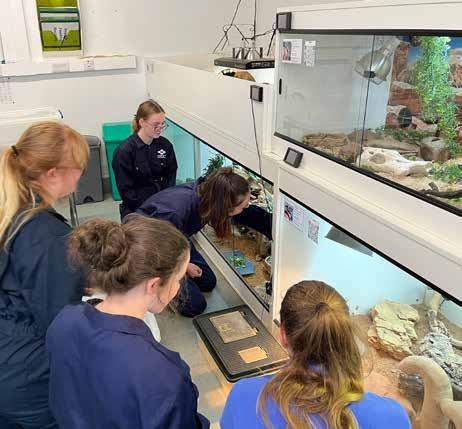

ANIMAL CARE FACILITIES
SRUC offers purpose-built animal care facilities and a wide variety of animals.
Our animal care facilities enhance the student experience by giving students the opportunity to work with a variety of reptiles, mammals, birds, fish and on some campuses, farm animals.
Practical sessions give students the vital hands-on experience they will need, across the different types of species, and compliment theory work learnt in the classroom.
ANNA BURNS
HND ANIMAL CARE
Anna is pictured with Drogon, a male white tailed sea eagle, at her job at Elite Falconry in Fife. Anna says:
“My gran first got me interested in birds, and my fascination grew during my time at college. I started volunteering at my local Peacock Sanctuary and during my last year at college I completed my work placement at Elite Falconry, and I was offered employment with them over the summer.”
Anna is now employed full-time at the falconry company. Along with her everyday care plans for the huge variety of raptors and owls, Anna is currently preparing to do her first Birds of Prey Experience with guests. This involves birds flying free under her supervision and showing guests how to fly the birds for themselves. The experience also

involves educating and informing visitors about conservation and protection. “It’s exciting to be able to deliver this experience, with the knowledge I learned at college and all the experience I have gained working at the centre.”
Roxanne Blyther, Manager of Elite Falconry said, “Anna has been a huge benefit to us. The animal care department at SRUC have always provided high quality students for placements who have a genuine interest in our birds. The students appreciate the hard work and dedication involved in keeping our birds healthy and safe. Educating the public about the birds of prey is a very important part of our work.”
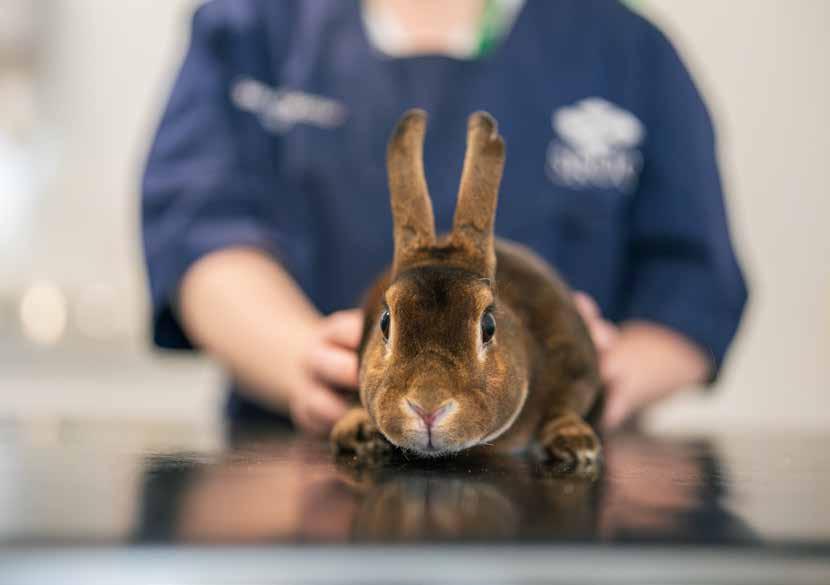
ANIMAL CARE
If your ambition is to work with animals, our Animal Care courses are a great option.
They give you the opportunity to gain valuable, hands-on experience interacting with a wide range of species in our modern facilities, and provide you with the confidence and ability to be able to work with others in the industry and provide the highest standards of care and welfare for the animals that you may be responsible for.
The ability to care for animals is a skill required in a wide range of organisations and nationally-recognised qualifications are now required by the majority of employers. Our courses offer a clear progression route, enabling
USEFUL LINKS
you to gain further qualifications after completing your course to help improve your career prospects.
The Introduction and NC courses will help you increase your basic knowledge of animal handling while Certificate and Diploma programmes will cover a range and depth of knowledge of the specialist care and welfare requirements of a wide variety of species and equip you with the skills to start your own business. SRUC offers Animal Care courses at a number of levels, and some require work experience as part of the entry requirements. £1b
Find out more about our courses direct from our students and staff: www.sruc.ac.uk/experience
Find out more about courses related to Animal Care on our website: www.sruc.ac.uk/animalcare
You might also be interested in learning more about SRUC’s courses in Equine Studies, Veterinary, or Animal Welfare Science.

Pet care and grooming services alone are worth around £1 billion to the UK’s economy.
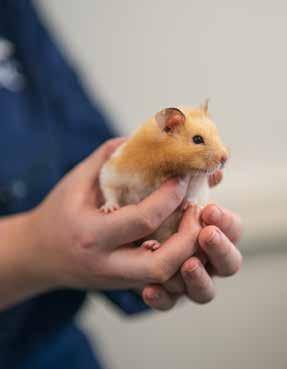
I am an older student at 28 with two children at home. SRUC is a very inclusive college willing to work with you to make the best of your learning experience and help you enjoy it too.
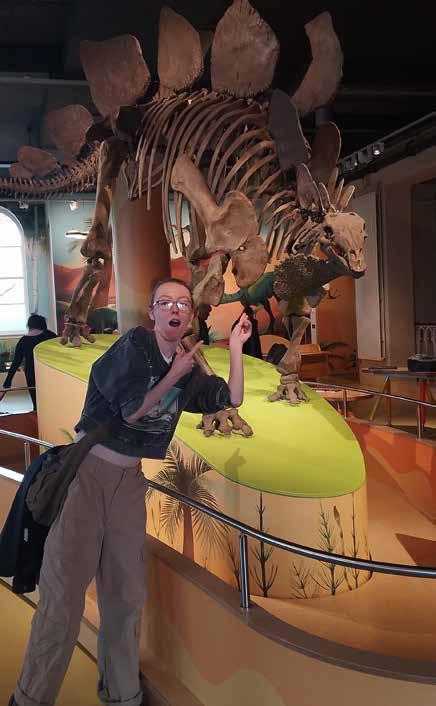
Animal Care
“Working with animals has been a passion for as long as I can remember, my hope is to one day work in conservation and make a difference for our future. While looking for animal care courses I came across SRUC.” Angel particularly loves reptile species, and says she enjoyed her practical duties in the reptile room as part of her course. She is also grateful to the staff who are always available to help with any problems. Angel concludes: “I am an older student at 28 with two children at home. SRUC is a very inclusive college willing to work with you to make the best of your learning experience and help you enjoy it too.”
ACCESS TO THE SECTOR
SRUC offers introductory and access courses to help develop knowledge and skills in this varied industry. Courses such as the online certificate in The Principles of Animal Care and the PDA in Animal Science and Communication are designed to supplement your existing studies and build on your expertise, not only of dealing with animals but also communication skills and health and safety regulations.
60% of UK households own at least one pet. 60%
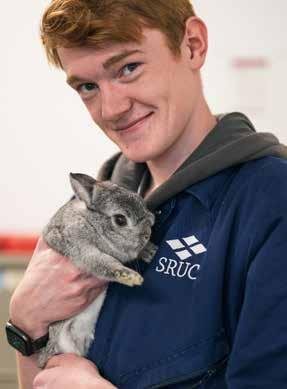
CAREERS
There are numerous opportunities for people with animal care qualifications, such as work in:
• BOARDING KENNELS AND CATTERIES
• CHARITY ORGANISATIONS
• WELFARE CENTRES
• ANIMAL WELFARE
• ANIMAL RESCUE
• LOCAL AUTHORITIES
• PET SHOPS
• FARM PARKS AND ZOOS
Other career opportunities may be available in the areas of animal science, poultry or agriculture.

CAREERS
ANIMAL SCIENCE & ANIMAL WELFARE
Animals and their interactions with humans are at the heart of many societal challenges, including sustainability, environmental impact, conservation, and animal welfare. Navigating these challenges requires scientific evidence. SRUC has one of the largest animal science research groups in Europe, and our research is effecting positive change on a global scale.
Studying at SRUC will give you access to our world-leading experts and their work in animal behaviour and welfare, breeding and genetics, nutrition, and animal health – preparing you to pursue an exciting career working with animals. Your studies will include visits to relevant research institutes, commercial companies, zoos, animal charities and to
local and SRUC-owned farms and animal care facilities. Our graduates are already making a difference in many important areas such as ensuring the health and productivity of animals, mitigating greenhouse gas emissions, improving global food security and making a positive difference to animal welfare.
The UK’s animal welfare standards are among the top-four globally (World Animal Protection API).
SRUC’s animal science courses lead into a wide range of career options including:
• VETERINARY OR LABORATORY SCIENTIST
• RESEARCHER
• GENETICIST
• CONSERVATION OFFICER
• ANIMAL NUTRITIONIST
• ANIMAL HEALTH AND WELFARE OFFICER
• QUALITY ASSURANCE OFFICER
• POLICY ADVISOR
• AGRICULTURAL CONSULTANT
• ANIMAL MANAGER
• TECHNICAL OFFICER
• ZOOKEEPER
• ANIMAL ADVOCATE
You could work for government and international agencies or large research institutes, and in high-tech or agricultural and environmental sectors, or industries allied to animal production.

SRUC offers degree courses in Applied Animal Science and Animal Welfare Science.
“The course is so broad we cover any subject you could dream of relating to animals –from Ethics to Neurology, Physiology to Data Science. There are so many parts of the course to sink your teeth into that you are guaranteed to find your niche.”
Laura Anderson, Applied Animal Science

SRUC has one of the largest animal science research groups in Europe.
OLIVER BELLARBY
BSc (Hons) Applied Animal Science
“This course looked like the perfect mix of science and animals, and it has turned out to be just that. I did not think when I started this degree I would enjoy studying nutrition, but the Nutrient Requirements and Diet Formulation module in second year has been my favourite. I often look back at one of my assessments because I feel very proud of it.”
“There are not many universities where the students can directly link in with world class researchers. It was definitely one of the biggest pros to coming to SRUC. I have loved so much of this course, and I have learnt so many things that interest me. This course can take you anywhere and gives so many opportunities.”
I have loved so much of this course, and I have learnt so many things that interest me. This course can take you anywhere and gives so many opportunities.

USEFUL LINKS
Find out more about our courses direct from our students and staff: www.sruc.ac.uk/experience
Find out more about courses related to Animal Science on our website: www.sruc.ac.uk/animalscience
You might also be interested in learning more about SRUC’s courses in Animal Care, Veterinary, or Agriculture.


KEIRA YOUNG
BSC (HONS) APPLIED ANIMAL SCIENCE
“Studying at SRUC has come with many exciting opportunities. Favourites of mine are visiting the many animal facilities and getting hands-on experience with animals that I’ve never personally encountered before. The best would be the baby piglets! But most of all it would be the wonderful people I have met, both faculty and classmates, knowing I have made meaningful connections that will certainly last into the future.
Staff at SRUC are some of the most understanding and helpful people that I have come across in my academic career and they take great care in treating each student as an individual rather than a number.
Life on campus is fantastic, and I am always eager to get back following a break. Everyone is super friendly and there are many places to spend time studying or socialising. The facilities at SRUC are great.
If I were to give any advice to those looking to study with SRUC, I would say come along to our open days and get chatting to the staff and students here. If you’re considering one of the courses, nothing will make the decision easier. Additionally, don’t let nerves get in the way of opportunity. It can be scary starting something new but the benefits, experience, and people you will meet will make it worth it tenfold.”

The SRUC School of Veterinary Medicine and Biosciences offers a wide range of programmes for anyone interested in animal health and related careers.
This includes programmes in Veterinary Medicine, Veterinary Nursing, and specialist postgraduate study, as well as training for the wider veterinary team. The School also supports careers across animal-related industries, with courses in areas such as Animal Science, Equine Science, Animal Care, and animal-related business and research — providing the skills and knowledge needed to thrive in a growing, evolving sector.
Programmes and study pathways are offered at our SRUC campuses across Scotland. This allows SRUC to offer an innovative and unique way of learning that brings different professions together, even for students who are spread out geographically.
SRUC’s teaching is supported by an internationally recognised team of animal and veterinary scientists,

with a national network of veterinary hubs providing a basis for a distributed model of learning for our BVSci Veterinary Science programme.
Our research is ranked as the best in the UK, and our Consulting offices give us unparalleled links to real rural business.
We believe in producing well-rounded graduates. Our programmes combine practical experience with teaching across different subject areas, so students leave with the confidence to adapt, problem-solve, and work well with others. Whether you want to work with animals, support the wider veterinary field, or make a difference in the rural economy, SRUC gives you the foundation to build a strong, future-ready career.
VETERINARY MEDICINE

Veterinary medicine deals with the health and welfare of animals. Veterinary professionals play a vital role in the treatment of a wide range of animals and have an important role within animal welfare, public health, and society.
SRUC’s BVSci Veterinary Science degree will qualify you to become a vet. The degree will be taught alongside our other veterinary related programmes enabling all students to experience the real-life team-working ethos of veterinary practice right from the start of their degree.
A key aspect of the veterinary medicine degree is practical teaching and you will be trained to work with a range of animals, including farm animals, equids, domestic companion animals, exotics and wildlife. The final year will be lecture
free and spent putting your learning into practice on clinical rotations where you will spend time working alongside our partners within the veterinary profession.
The BVSci is a 5 year full-time programme incorporating in-depth theoretical and practical learning along with placements for hands-on work experience. Applicants for the course will be expected to demonstrate a range of vocational experience to accompany their application.
Find out more about our courses direct from our students and staff: www.sruc.ac.uk/experience
Find out more about courses related to Veterinary Medicine on our website: www.sruc.ac.uk/vet
You might also be interested in learning more about SRUC’s courses in Animal Sciences, Veterinary Technology or Veterinary Nursing.

CAREERS
The main purpose of the BVSci qualification is to qualify you to practise as a vet.
The focus of our BVSci degree is to prepare you for a mixed practice role, providing a veterinary service for a whole community. Some Vets do specialise however, and you may choose to focus your career more specifically in:
• COMPANION / SMALL ANIMAL
• FARM / LARGE ANIMAL
• EQUINE
• EXOTIC / ZOO
• FOOD SAFETY AND PUBLIC HEALTH
You could also work in education, in the charity sector, or in disease surveillance and research.

RCVS ACCREDITATION
SRUC is working with the Royal College of Veterinary Surgeons (RCVS) to ensure the BVSci Veterinary Science programme meets the required standards and graduates will be eligible for registration with the RCVS. As with all new UK vet schools, this is a phased process that takes place over several years as our first cohort progresses through the programme. We are working closely
WIDENING PARTICIPATION
We aim to widen participation and access to our veterinary programmes through bespoke foundation programmes and specific pathways. We are also mindful that remote or rural communities may have limitations to their access to specific school qualifications or work experience opportunities. Our applications criteria are intentionally broad, so that we open up the chances for study with us to as many people as possible.
with the RCVS throughout to ensure we meet all accreditation standards. Those registered on the BVSci will be subject to fitness-to-practice approval and graduates join the RCVS Register as members, allowing them to practise veterinary surgery in the UK.


EXTRA MURAL STUDIES (EMS)
Veterinary students must complete Extra-Mural Studies (placements) during their course to graduate. This is a requirement of the Royal College of Veterinary Surgeons and provides excellent opportunities for students to learn in a range of different environments matched to their interests and ambitions. EMS placements are supported by SRUC but are organised by the student. Additional fees/costs apply.
You will learn alongside animal industry-related professionals so that you will become advocates of the development of economically viable, appropriately skilled, veterinary teams. Within these teams you will be better placed to support each other in your professional careers. By developing a strong team ethos throughout the curriculum, you will be better able to negotiate the professions that you will be an integral part of.

ABBI HARCUS
BVSCI VETERINARY SCIENCE
Though she loved animals, and even helped out with a little agricultural work from time to time, the reality of caring for large livestock came as something of a surprise to Abbi as she embarked initially on the Diploma course at SRUC.
“I was about 15 when I knew I wanted to be a vet, but when I started, I realised I had a lot to learn. I didn’t have the farming background, the lecturers really took the time to help, and I made great friends in my class. It was a jump definitely, but I’m so glad I took it.”
Abbi knew she wanted to study veterinary medicine and work as a vet in an agricultural setting, but few suitable options for study existed. “I didn’t get a feeling from elsewhere that they would look at me as a person instead of a set of grades” she said. “I think my Diploma has really prepared me well for what it takes to study to be a vet, especially practically, but it isn’t the kind of experience that the others wanted.”
Abbi applied and was accepted for the newly created BVSci Veterinary Science at SRUC, becoming one of the first students on the course. Finding something so closely aligned with her wants and needs almost felt unreal, and getting ready for study has proven to be a rollercoaster.
“It’s really exciting; it feels so good to be able to take the path I want. Everything I’ve learned so far will be really important when I finish and go into practice, it’s been the best start I could have had. When I finish, I want to go into practice as soon as I can, and I’ll definitely stay in Scotland. There’s so many rural areas that struggle to keep vets; staying in the industry is tough. I’m ready for it, and I think things are going to start changing soon.”

RURAL VETERINARY TECHNOLOGY
Our new Rural Veterinary Technology* programme addresses the need for accomplished technicians and laboratory roles within veterinary teams.
This Certificate/Diploma in Higher Education delivers practical experience working with large animals enabling you to seek employment as a large animal veterinary technician or follow other related careers such as animal welfare officers, cattle foot trimmers or meat hygiene inspectors.
This programme is ideal for students who are passionate about animal health and want a practical, hands-on career in the veterinary world. You will gain a solid grounding in modern biological principles, including the molecular basis of infection and immunity, genetics, reproduction, animal physiology and nutrition.
You’ll be given hands-on practical experience with multiple species including sheep, cows, and horses, learning skills such as artificial insemination, dosing techniques, handling, body condition scoring, locomotion analysis and health and welfare analysis.
*Subject to validation
PROGRESSION
These programmes provide a route into the BVSci Veterinary Science degree for people who may not have the right school qualifications but do have experience or a strong interest in veterinary science and working in a rural setting. They cover the basics of anatomy and biology, and deliver the essential core knowledge and skills required for entry level onto a veterinary medicine programme, or progression into other life science degrees. Students who do very well in the Diploma and meet the required grades can apply to join the BVSci degree.
VETERINARY BIOSCIENCES
Our new Veterinary Biosciences degree (subject to validation) aims to provide a solid grounding in the chemistry, biology, biochemistry, and molecular biology required for a technical career in laboratory biosciences associated with the veterinary and biomedical sector. This programme is new at time of print and further information can be found on SRUC’s website.
CAREERS
Veterinary technicians play a vital role in the day-to-day running of a modern veterinary practice. Working closely with vets and veterinary nurses, they provide essential technical and clinical support — helping with procedures, monitoring animals during treatment, and ensuring high standards of care. Duties can vary depending on the other staff in the Practice, but may include:
• ASSIST IN DIAGNOSTIC PROCEDURES, SUCH AS TAKING BLOOD SAMPLES, RADIOGRAPHS (X-RAYS), OR PERFORMING LAB TESTS
• PREPARE ANIMALS AND EQUIPMENT FOR SURGERY
• PROVIDE EMERGENCY SUPPORT UNDER VETERINARY SUPERVISION
• MAINTAIN CLINICAL RECORDS AND ASSIST WITH CLIENT COMMUNICATION
• SUPERVISE OR TRAIN OTHER SUPPORT STAFF OR STUDENTS

VETERINARY NURSING
Veterinary Nursing is a career that involves planning and providing care for a wide variety of patients; mainly dogs, cats, rabbits and other small mammals but also birds and reptiles.
Some vet nurses may also be involved in dealing with horses and farm animals. In addition to patient care, vet nurses are trained to carry out a wide range of roles such as nurse clinics, preparing patients for surgery, monitoring anaesthetics and peoplefacing roles such as welcoming and providing advice to clients and liaising with industry professionals.
Registered Veterinary Nurses (RVNs) are vital members of the veterinary team. They work alongside veterinary surgeons in practices, hospitals, or referral centres to deliver care to a wide range species.
Veterinary Care and Animal Welfare qualifications provide the knowledge and skills required to work in veterinary practice as an animal nursing/care assistant, supporting qualified vets and veterinary nurses in the care and treatment of patients.
Our campuses have a range of excellent facilities for practical work including clinical skills areas, nursing skills, theatre preparation, operating, recovery and diagnostic imaging, along with dedicated Animal Care Training Centres with housing for many small animals, reptiles and birds, and laboratories to learn about diagnostic techniques.
Find out more about courses related to Veterinary Nursing on our website: www.sruc.ac.uk/vetnursing
You might also be interested in learning more about SRUC’s courses in Animal Care, Veterinary, Medicine or Animal Science.

The Veterinary Nursing profession is working hard to try and increase the number of male Veterinary Nurses which remains very low.
CAREERS
There are many opportunities to develop your career in veterinary nursing. Many vet nurses follow a career pathway that leads to senior nurse level, head nurse, and also practice management or ownership.
Often experienced nurses are involved in training student nurses in a vet training practice by becoming a Clinical Supervisor or a tutor or lecturer. Vet Nurses may specialise in an area of veterinary nursing practice or industry that interests them such as:
• EMERGENCY AND CRITICAL CARE
• TEACHING/RESEARCH
• SURGERY
• EXOTICS
• BEHAVIOUR
• INSURANCE
• PHARMACEUTICALS
• PET/ANIMAL FOOD AND NUTRITION
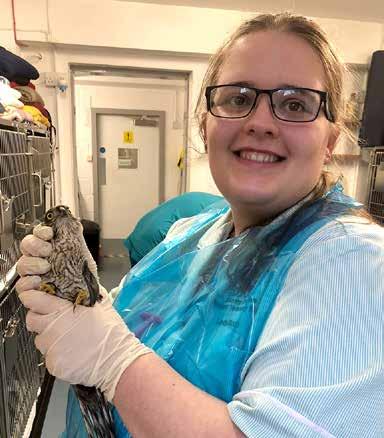
This course allowed me to grow exponentially as an individual and I feel ready to tackle anything that is thrown at me.

All SRUC Veterinary Nursing programmes are accredited by the Royal College of Veterinary Surgeons (RCVS). Successful completion allows students to apply to register as a Registered Veterinary Nurse (RVN). This is legally required to practise as an RVN in the UK.

LUCY SCOTT
BSc (Hons) Veterinary
Nursing
“I have always wanted to work with animals from a very young age and felt that this course aligned with what I was passionate about. The variety of the course was very intriguing and felt right for me.
The course has been difficult throughout but when I succeeded at something it felt incredible, it really highlighted that hard work paid off. I really enjoyed meeting all of the staff and other people on my course – working together was always a blast and nothing felt impossible when you had the right people around you. During several parts of the course my private life got quite hectic, and I had a few personal barriers that I needed to overcome. It felt impossible at the time but getting through it and looking back now it was all worth it – the support from staff throughout has been incredible. This course allowed me to grow exponentially as an individual and I feel ready to tackle anything that is thrown at me.
My time in clinical placement really highlighted where I want to start my professional career. I plan on working in small animal practice and branching out into CPD such as radiography to learn more about these areas. I hope one day to possibly work in a variety of different practices including referrals and continue to expand upon my skills.”

The role of a vet nurse can be both physically and emotionally demanding. Compassion, attention to detail, and resilience are essential.

RURAL BUSINESS MANAGEMENT
Rural Business Management is a business course where students receive an excellent business education that is combined with practical knowledge and skills required to support a future career in the rural sector.
This course teaches essential business skills such as entrepreneurship, enterprise, and economic policy, with sustainability and environmental values in mind. You will be equipped with valuable skills and knowledge to support rural industries and smaller enterprises, whilst also gaining a wellrounded business education that can be applied globally.
Classroom teaching is well supported with real life case studies and the opportunity to see business in action,
with site visits forming an integral part of the course. Course content is designed with business in mind and is shaped with professional input to ensure students are prepared for 21st century challenges in land-based and rural industries.
As well as studying marketing, economics, management and finance, you can choose to further tailor your course by taking modules in a wide range of other subjects to truly make this course your own.

CAREERS
CAREERS
Rural Business Management provides specialist and in-depth knowledge in a variety of business areas, preparing students well for future careers. By choosing to supplement the core business knowledge from this course with subject specific input, students are well placed for the diversity of careers in this sector. Many graduates have gone on to set up their own businesses. Studying at SRUC means that students also have direct links to SRUC’s Consulting business. Other career areas that students have gone into include:
• RURAL SURVEYOR
• AUCTIONEER
• ESTATE MANAGER
• GOVERNMENT POLICY ADVISOR
• MANAGEMENT ANALYST
• ANIMAL / FEED SUPPLY SECTOR
• TOURISM MANAGEMENT
• EQUINE BUSINESSES
• VETERINARY PRACTICE MANAGEMENT
• MARKETING MANAGER
• LOCAL AUTHORITY / PUBLIC SECTOR
• SMALL BUSINESS MANAGER
99.8%
SMEs (small and medium-sized enterprises) account for 99.8% of the business population in the UK. At the start of 2024 there were estimated to be 5.5 million UK private sector businesses. Around three quarters of these had no employees — entirely ownermanaged operations such as sole proprietorships, micro companies, or partnerships.
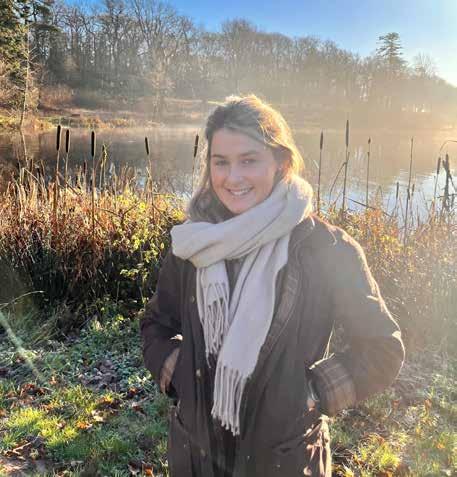
JODIE CAIG
BA (Hons) Rural Business Management
Jodie says: “I understood the way agriculture and the rural economy was going and I wanted to be able to play a part in improving and developing the rural economy, as policy changes and environmental impacts increase. Being able to understand the background to what makes the rural economy tick all enticed me to study this course.
Each module is unique, it really depends on where your interests lie as to which module you enjoy the most. My personal favourites were the Rural Surveying and Land Use modules; being able to continue to supply the food chain but utilise the land in other ways to relieve financial strain and stress is so important, allowing farmers to keep farming but develop a sustainable business to pass down the generations.
I chose SRUC as the opportunities available were brilliant. I have made friends which I hope will last a lifetime and memories to go along with them, and I have gained contacts to help me in my career. Since graduation, I’m working at Davidson and Robertson as a Graduate Rural Surveyor where I am working towards sitting my APC to gain my MRICS.”
I chose SRUC as the opportunities available were brilliant. I have made friends which I hope will last a lifetime and memories to go along with them, and I have gained contacts to help me in my career.
SPECIALISMS AND ACCREDITATION
The units that make up our Honours degree are recognised by a number of industry bodies and sector leaders meaning that study with us offers you professional body membership and access to industry standard training to set you apart from applicants in your chosen field upon graduation.
Our Rural Business Management Honours degree has been recognised and accredited by a number of professional and chartered institutions. You can choose specialist electives which results in accreditation from the Royal Institute of Chartered Surveyors (RICS); a rural pathway giving you the opportunity to graduate with a RICS accredited degree. SRUC is also one of only three universities in Scotland to hold accreditation from the Tourism Management Institute (TMI); this elective route offers an alternative pathway for students wishing to pursue a career in tourism.






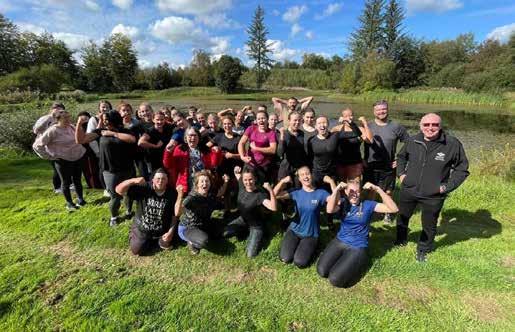
SRUC:
WORLD-LEADING RESOURCES AND CONNECTIONS
With the joint academic and business focus of SRUC, and our unrivalled research and access to industry, your course will be relevant and current.
At SRUC, you’ll benefit from world-class facilities, pioneering research, and direct access to a wide network of industry experts. SRUC research teams work across a number of subject areas including animal behaviour and welfare, soils, genetics, disease and epidemiology, environmental management and impact, economics and policy, and agrifood systems. We bring together experts to tackle some of the world’s most pressing issues such as the future of food, the global climate emergency, and digital innovation, and produce research that influences industry, policy, communities and society.

Our cutting-edge facilities include the GreenShed, a unique system that transforms cattle waste into low-carbon energy and fertiliser. Through the Digital Dairy Chain, we’re revolutionising dairy production by using data and tech to improve sustainability, efficiency, and animal care.
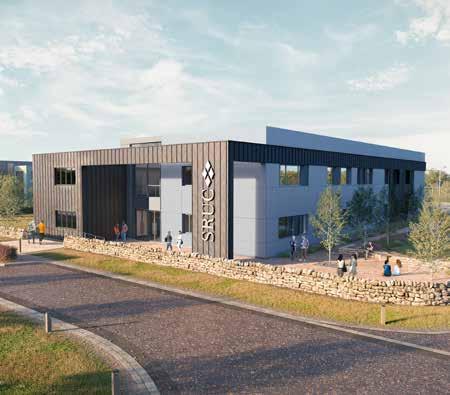
We’re also proud partners in major innovation hubs such as SeedPod, a £21 million food and drink centre, and RAVIC, our new veterinary bioscience centre focused on disease control and surveillance. Our Enterprise Academy champions innovation and entrepreneurship across the rural economy.

You’ll also benefit from SRUC’s vast network of consultancy offices across Scotland and northern England. These teams deliver expert advice rooted in the latest research, supporting everyone from local farmers to major agrifood businesses. In fact, SRUC delivers more business value to small and medium-sized enterprises than any other UK university (Universities UK).

As a student, you’ll see this expertise in action – through study tours, field trips, industry visits and real-world case studies. Small teaching groups ensure regular engagement with experts, and many courses include training in industry-recognised qualifications. Our graduates go on to thrive in their chosen sectors, with the skills, confidence and connections to make an impact.

The SRUC School of Natural and Social Sciences brings together experts from a wide range of subjects to help tackle some of the biggest challenges facing society today.
Combining expertise in natural sciences (like ecology, agriculture, and environmental science) with social sciences (such as economics, policy analysis, and rural business management), allows us to solve real-world challenges.
Whether it’s growing food more sustainably, responding to climate change, protecting biodiversity, or rethinking how communities live and work, our courses and research equip students to understand and solve complex problems. By looking at these issues as part of a bigger system, you can help to find practical, joined-up solutions that work for both people and the planet — in Scotland and around the world.
Our work supports policy change in Scotland, strengthens communities across the globe, and

connects students directly with innovations happening on the ground. From artificial intelligence and vertical farming to social innovation and environmental systems thinking, our students don’t just study change — they learn how to lead it.
At SRUC, you’ll benefit from hands-on learning, access to world-leading research, and strong links with real businesses through our national consulting network. You’ll learn from academics and professionals who are at the forefront of change, gaining practical skills as well as systems thinking that are increasingly soughtafter across sectors.
With curiosity, purpose, and passion, the School of Natural and Social Sciences prepares you to turn global challenges into meaningful career opportunities.
AGRICULTURE

SRUC has been educating and helping the agricultural industry for over 125 years, and our agriculture courses continue to be dynamic and allied to the needs of the industry.
From farm to fork, studying agriculture will teach you about all aspects of the food production chain including farm business, soils, crop and livestock production, mechanisation and precision technologies.
Agriculture at SRUC is focused on the wider agricultural industries as well as farming and farm management. Course content looks at agriculture related issues such as wildlife and countryside protection and management, and animal welfare, as well as how agriculture interacts with today’s society. You will develop essential skills to prepare you for a wide range of agricultural careers with expert industry input both inside and outside of the classroom.
Accounting for more than 7% of Gross Domestic Product, and supporting around 10% of total UK employment, the agri-food industry is an integration of agriculture with other sectors of the food chain, such as processing, distribution and retailing, and remains a vital pillar of the UK economy.
Find out more about our courses direct from our students and staff: www.sruc.ac.uk/experience
Find out more about courses related to Agriculture on our website: http://www.sruc.ac.uk/agriculture
You might also be interested in learning more about SRUC’s courses in Business or Animal Sciences.

70% of the UK’s land is used for Agriculture – one of the highest percentages in the world.

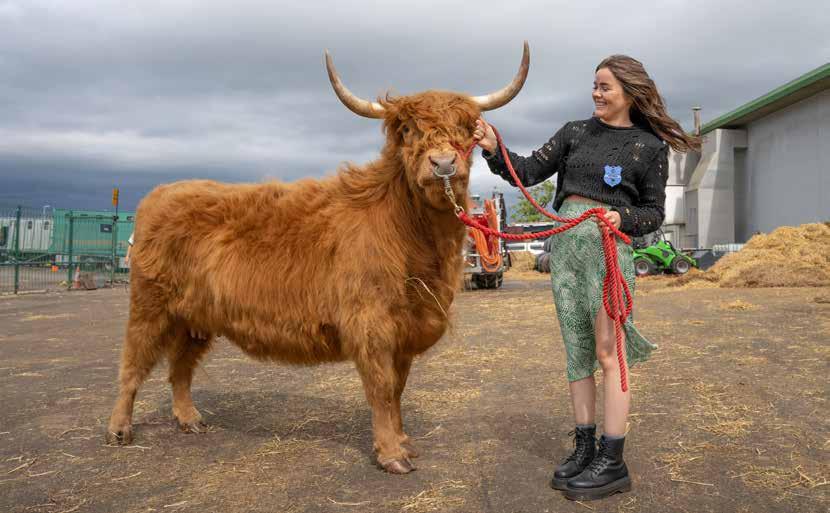
JENNIFER MITCHELL
BSc (Hons) Agriculture
“I didn’t want to get caught up too much in the business side of things at the start, I just kind of wanted to know about running a farm” she said. “As time went by, I realised there was so much more to it than I thought. The lecturers were fantastic, they made everything so interesting and I learned so much so quickly.”
“I was part of the student exchange to the University of Arkansas where I learned about agriculture in America and made really good connections. Then I did a placement with SAC as a consultant, which was really useful, I was based in Lanark and I got to see a lot of the area and get lots of hands-on practical experience.”
Some of those opportunities led to even more, with Jennifer finding herself at the prestigious ALBAS awards, winning not only Higher Education Learner of the Year, but a CARAS award too.
CAREERS
SRUC is well connected in the agricultural industry, providing plenty of employment opportunities for students upon completion of their studies. Our associated Consulting services also means that students don’t have to look far for possible employment. The varied nature of the course with the ability for students to tailor their course to their areas of interest, as well as the practical industry knowledge gained through study visits, equips students for a variety of jobs in agriculture and related industries.
Many of our students who come from a farming background choose to go back to their family farms and help diversify the business after completing their qualification. Other areas students have gone on to include:
One of the Top 5 UK Universities to study Agriculture and Animal Sciences, according to the Guardian league tables.
As time went by, I realised there was so much more to it than I thought. The lecturers were fantastic, they made everything so interesting and I learned so much so quickly.
• AGRONOMY
• ANIMAL NUTRITION
• AGRI-BUSINESS
• AUCTIONEER
• FARM MANAGER
• AGRICULTURAL CONSULTANT
• POULTRY PRODUCTION
£136b
Agriculture and the related agri-food industries contribute around £136 billion to the UK economy and around 10% of total UK employment.
AGRICULTURE FACILITIES SRUC:
SRUC’s farm portfolio covers over 4000ha across Scotland, with everything from mountain top sheep enterprises to intensive grassland, beef, lowland ewes and pigs. All are used for teaching and provide both research, education and knowledge transfer.
SRUC's agricultural facilities support outdoor teaching and academic research as well as commercial activity. SRUC’s crop trial service offers a network of experimental satellite stations covering diverse regions and types of agriculture in Scotland. Our leading-edge Beef and Sheep Research facility covers developments in biology, engineering, finance and environmental performance in ruminant production systems. SRUC’s Pig Research Centre undertakes animal science and behavioural projects along with analytical and diagnostic services.

The Vertical Farm is an exciting, innovative farming solution at SRUC’s Edinburgh campus providing a fully controllable facility for researching crop growth. The facility features a six metre high tower with growth trays, and will enable researchers to study the best conditions for effective crop growth with lighting, irrigation, fertigation, and climate all fully manageable.
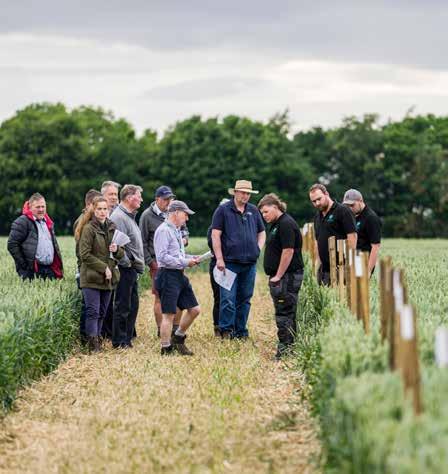
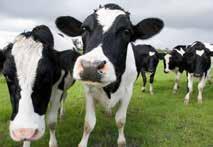
The Dairy Nexus is a transformational project fostering innovation in the dairy sector, decarbonising and boosting productivity. A biorefinery unit supports new by-product innovation and Digital Twin technology measures all aspects of the dairy farming system, including soil health and cow behaviour.

SRUC's Hill & Mountain Research facilities are dedicated to studying agricultural practices in challenging terrain. Focusing on sustainable land management, biodiversity conservation, and community engagement in upland areas, the research addresses environmental challenges while supporting rural economies and resilience in these landscapes.
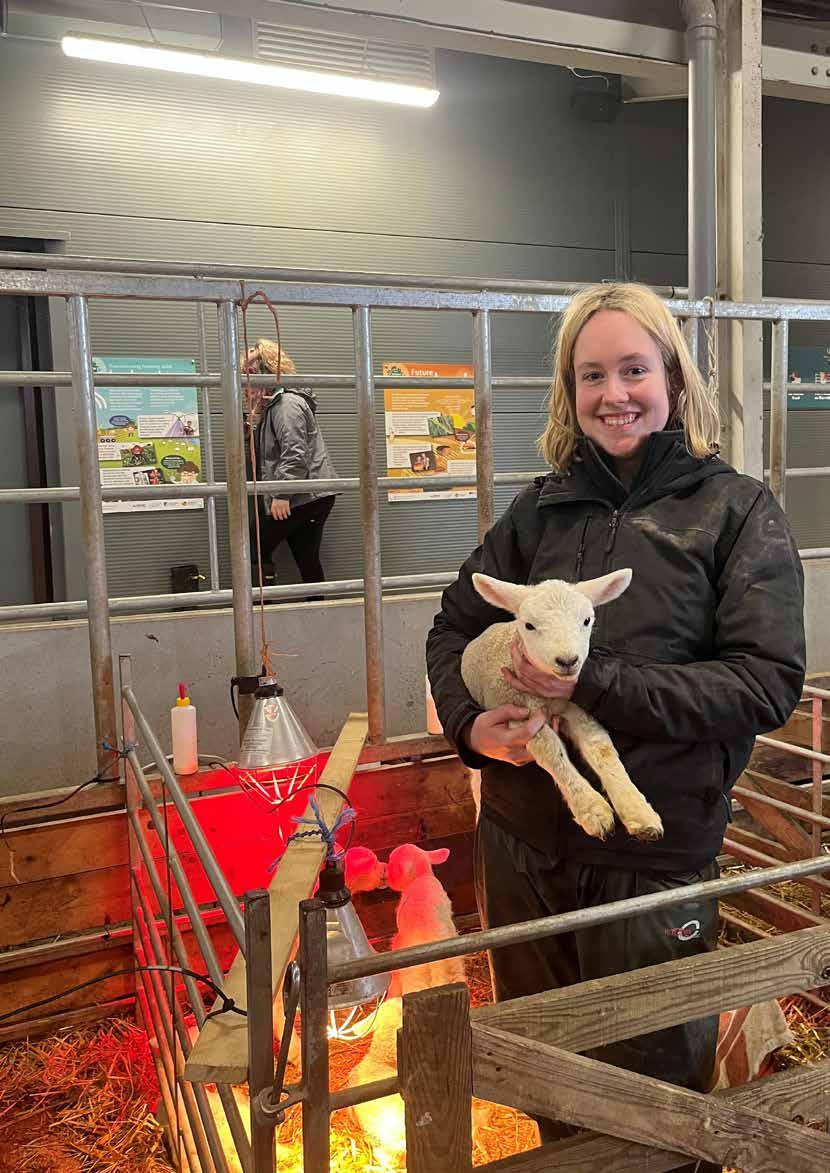
KIRSTY BROWNLEE
BSC (HONS) AGRICULTURE
“I was born and raised in the City of Edinburgh and was not from a farming background in any way whatsoever. I was never someone who liked being stuck inside, I much preferred being outside and in the countryside.”
Kirsty fell in love with animals and agriculture through frequent family visits to a Cumbrian sheep farm as a child, bottle-feeding her first lamb age 2! She continues: “I got more involved throughout the years to the point where I am now working here and helping with all aspects of the farm. I think that this particular farm really kick-started my passion and love for agriculture and from then on it has been an incredible journey with many people nearby to the farm and in Edinburgh now giving me opportunities to see their operations. I'm very lucky to have had the opportunities I have had, as I now have experience in the dairy, beef, chicken and pig industries.
I decided to study agriculture in order to broaden my knowledge and connect with industry experts. I chose SRUC because of its incredible team of teaching staff, who are all experts in their respective fields, along with the insight you get into current research going on and the opportunity to be taught by those carrying out this vital work.
Although it may sound cliche I have loved all of the course so far, especially the practical sessions and livestock module! My favourite aspect of the course is livestock nutrition, I found that module really interesting and it's something that I have realised is a real interest of mine, along with agriculture and I would really like to pursue it as a possible career choice after university.
When I finish my course, I would love to gain more experience in different agricultural sectors, in order to see if I have a specific favourite, alongside nutrition. However, I do really love practical farming as well, so I hope to balance a more consultantbased job in nutrition with doing some sheep work. In 5-10 years time, I would like to be in a livestock nutrition consultancy job, helping farmers to get the best out of their livestock and helping with the research into nutrition and finding new pathways that can aid the development of new feeds. I would also like to be a contract shepherd, as I have a real passion for sheep and would love to still be working with them on a day-to-day basis.”
MARISSA ZACHORECKI
NC Land-based Engineering (Agriculture)
Marissa always wanted to do something practical and hands-on as a career recently completing her NC in Land-based Engineering (Agriculture) to follow up on the NC in Agriculture she completed previously. Her favourite modules on the course were welding, and stripping/rebuilding gearboxes. Marissa found the workshop facilities excellent and has gone on to secure a Modern Apprenticeship in an engineering business to follow up on her NC.
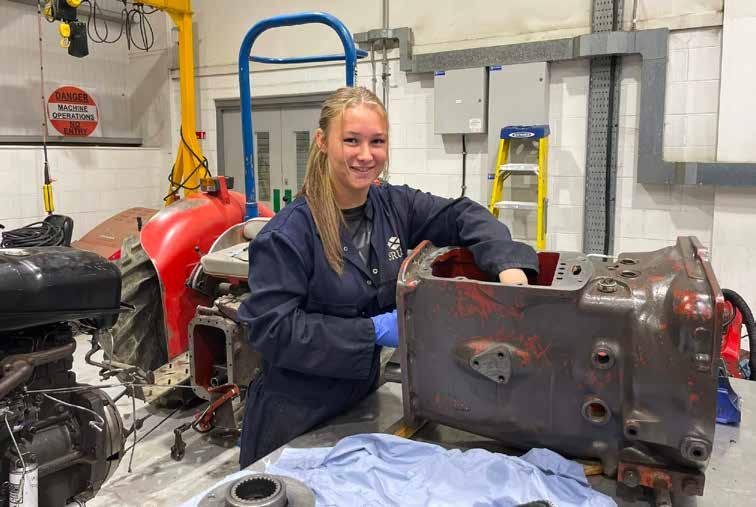
LAND-BASED ENGINEERING
Land-based engineering is a career for anyone with an interest in machines and how they work, a desire to learn practical skills and a fascination with new technology.
Today’s engineer has to be selfmotivated and highly trained in order to meet the demands of working with modern tractors, machines and equipment and must have strong analytical skills and an innovative approach to problem solving. Highly skilled people are needed to design, develop, operate and maintain the land-based technology and tools of the future. Our engineering workshops, which include welding
USEFUL LINKS
and fabrication areas, provide students with an optimum learning environment for practical work. SRUC has close working relationships with a range of machinery manufacturers which provides students with access to modern equipment. We have a wide variety of machinery on-site on which students can hone their skills and increase their technical knowledge for fault-finding, diagnostics, repair and maintenance.
Find out more about our courses direct from our students and staff: www.sruc.ac.uk/experience
Find out more about courses related to Engineering on our website: www.sruc.ac.uk/ engineering
You might also be interested in learning more about SRUC’s courses in Agriculture or Forestry.
CAREERS
There are numerous career opportunities for people with landbased engineering qualifications. Some technicians may specialise in a certain field, which could be ground care, tractors, combine or forest harvesting. A Technician would be employed by a manufacturer and main dealers or could be independent and self-employed. An experienced Technician can work towards:
• DIAGNOSTIC TECHNICIAN
• MASTER TECHNICIAN
• WORKSHOP FOREMAN
• SERVICE MANAGER
• SALES ROLE
• PARTS DEMONSTRATORS
• CONTRACTOR

Those working in the Land-based Engineering sectors work with the most technically advanced products which may include GPS and telemetry, drones, robotics, autonomous vehicles and alternative fuel sources. LE-TEC
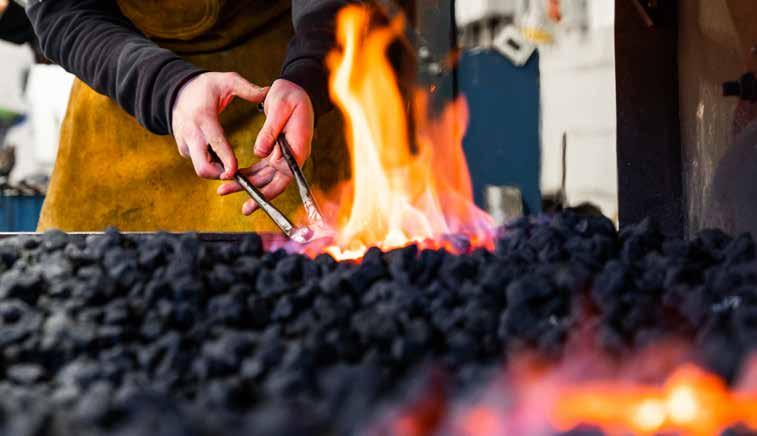
FORGEWORK
The Certificate in Forgework programme teaches the technical skills required to lead on to becoming a competent Blacksmith or Farrier.
The SRUC Oatridge Campus has a large airy forge workshop with four side-blast forge hearths, two propane gas furnaces, and eleven 125kg anvils with a wide array of cutting and joining equipment available specifically with blacksmithing and metalwork in mind.
A blacksmith or farrier is a metalsmith who creates objects from metal - predominantly mild steel. Good hand-eye coordination is necessary to master the hammer, anvil and fire in order to create precision pieces that are up to industry standards. Blacksmiths and Farriers frequently progress on to further education, work with other smiths, gain apprenticeships and often go on to trade in their own right.
CAREERS
Employment for people who have studied in this area can be in:
• BLACKSMITHING
• METAL FABRICATION
• WELDING TRADES
• SCULPTURE
• FINE ART & CRAFT
• FARRIERY A BLACKSMITH WORKS WITH AND CREATES THINGS FROM METAL, WHEREAS A FARRIER SPECIFICALLY FOCUSES ON THE CARE OF HORSES’ FEET.
DERIGHAN MACKIE
Forgework
Derighan’s decision to take up the course was a mixture of a love of metal work at school and wanting to follow in their grandfather’s footsteps as a blacksmith.
Derighan says: “If you plan to do this course, build up muscle in your arms, especially your forearms, and bring insoles for your boots, but also go in with an open mind and stick it out. It will be tough and challenging but it gets easier throughout the course. It really is a great course and has a lecturer who is very patient and will always help you.”
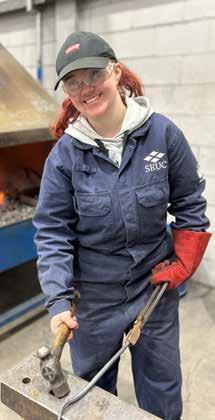
FORESTRY & ARBORICULTURE
Forestry involves sustainably managing trees and woodlands in rural areas for commercial, social and a range of other benefits. Arboriculture is the management and work in caring for individual trees or groups of trees in more urban areas.
Forests and woodland in Scotland cover around 19% of our total land mass, but that figure is going to increase markedly over the next few years. The Scottish Government has aspirations to increase forest cover as trees have an important role to play in mitigating the effects of climate change. Forestry in Scotland is worth £1 billion per year to the Scottish economy with an ambition to increase this to £2 billion over the next decade. This translates to plentiful employment opportunities in a wide range of areas within forestry, including tree planting and maintenance, harvesting, conservation and management roles.
A forestry or arboricultural qualification has opened doors for many students to develop wide ranging and interesting careers such as skilled craftsmen, technically proficient arborists, ground workers, team leaders, tree surgeons, forest machine operators and forest managers. Forests and urban forests also provide job opportunities in areas such as recreation, adventure tourism and health and wellness.

SRUC has excellent facilities and equipment including our forestry engineering workshop, forwarders, chainsaws, climbing equipment and simulators to help you develop your skills and knowledge. We also work closely with public and private forest estates for invaluable practical experience.
Forest carbon stock is the amount of carbon that has been sequestered from the atmosphere and is now stored within the forest ecosystem. Around half of the total UK forest carbon stock is in Scotland.


”If we are to tackle the most pressing societal and environmental challenges of our age, the message is simple: we need more trees.”
USEFUL LINKS
Find out more about our courses direct from our students and staff: www.sruc.ac.uk/experience
Find out more about courses related to Forestry on our website: www.sruc.ac.uk/forestry
You might also be interested in learning more about SRUC’s courses in Engineering or Wildlife and Conservation.

A forestry or arboricultural qualification has opened doors for many students to develop wide ranging and interesting careers such as: CAREERS
• SKILLED FOREST CRAFTSMEN
• TECHNICALLY PROFICIENT ARBORISTS
• GROUND WORKERS
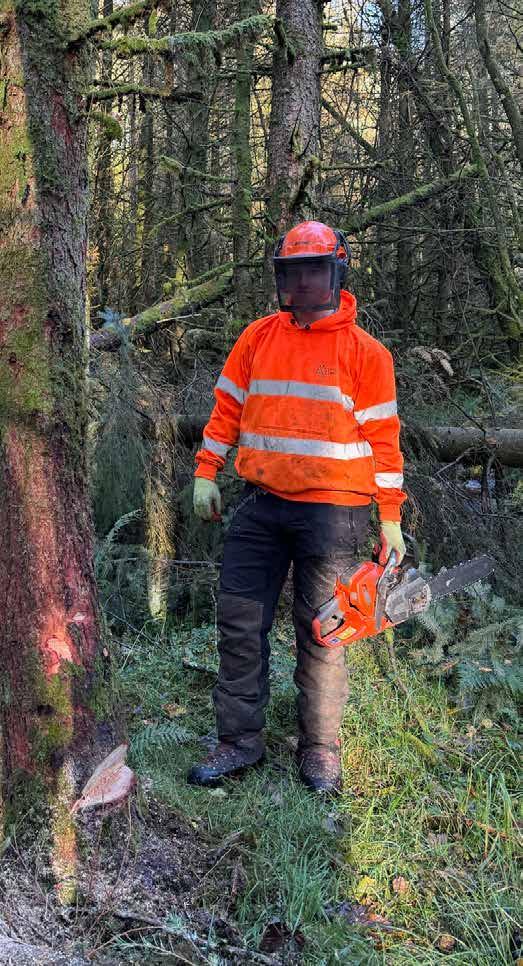
• TEAM LEADERS
• TREE SURGEONS
• FOREST MACHINE OPERATORS
• FORESTRY SUPERVISORS
ABIGAIL MILNE
Advanced Certificate Arboriculture
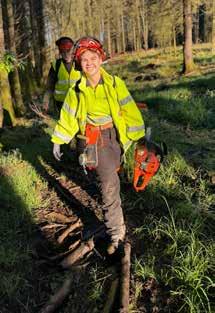
I am currently doing what I hoped I would after leaving the course: working full-time doing a mixture of arboriculture and forestry.
Abbie became hooked on the idea of doing a course in Forestry and Arboriculture after seeing a programme on television, and knew it was the career for her. Abbie says: “My favourite module is Tree Identification because I love to learn all the names of the trees and find out more about their history.”
“I was looking online for somewhere I could start to learn about climbing and arboriculture and we came across SRUC and it looked the best. My highlight of the course has been making new friends, and becoming more independent. When I complete the course, my aim is to get more experience on the job, work my way up, and then eventually start working abroad on the trees; I’d love to go to Germany and do forestry there.”
Scotland's forest cover sits at roughly 19%, effectively double that of England, and accounting for nearly half of the UK’s woodland. This is still significantly lower than the European average of nearly 40%.

FIELD TRIPS & VISITS
The opportunities to visit historic gardens, plant nurseries and community funded projects have been rewarding and highly informative.
Fiona, Horticulture

At SRUC, learning isn’t confined to the classroom! Whatever course you’re studying you’ll find that study tours, field trips, and real-life case studies all feature.
Our smaller teaching groups mean that we are able to arrange regular visits to relevant industry locations to meet with experts working in your field.
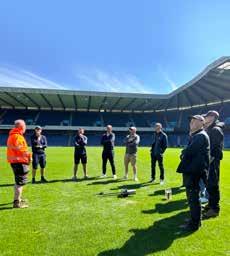
The study trip to the Isle of Rum was an amazing experience. We got to meet and work with the NatureScot team doing tasks such as deer counting and beach clearing. It was a great introduction to the kind of work that you can get involved in and was great, humbling team building work with my classmates and tutors.
Samantha, Wildlife and Conservation Management
My highlights of the course so far are getting to do field visits with so many industry professionals over the years. A recent favourite was a visit to an aggregate recycling centre, just something about watching a load of rocks tumbling around that scratches my brain.
Valentina, Environmental Management
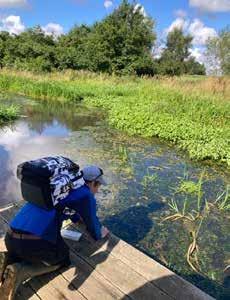
The classes are laid back yet very informative, with plenty of outdoor learning and site visits which break up the lectures too. We have also been having guests from the industry come in and do talks which gives you far more insight into the workings of the industry which I have found very interesting.
David, Forestry


The highlights were the field trips to various gardens, nurseries and research facilities. These visits really enhance the lectures and bring a new dynamic to each module.
Rebecca, Horticulture with Plantsmanship

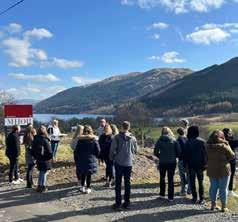
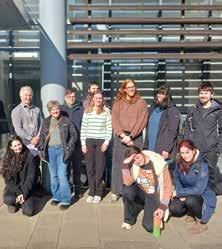
At SRUC I’ve particularly enjoyed the field trips I’ve been on as a part of many different modules. The opportunity to get into the field provides an application of classroom based learning. It also gives you a chance to meet new people and make connections in your chosen industry.
Katie, Environmental Management
The field trip to Muir of Dinnet was a good introduction to everything the course would cover. I was able to see the benefits of our work first hand. The connections in industry and the importance of education was very clear to see.
Nat Wildlife and Conservation Management


I loved meeting new people and also going on some fantastic field trips to highlight aspects of our course.
Christina
Rural Business Management
I loved all the field trips that we have taken as part of our modules to the zoo or to research farms. SRUC has many opportunities to expand your network outside of the classroom.
Elise, Applied Animal Science
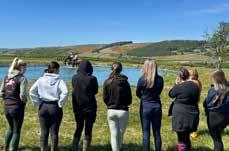
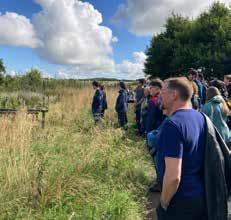

GAMEKEEPING
SRUC’s courses in Gamekeeping and Wildlife Management develop knowledge and skills pertaining to lowland and upland Gamekeeping.
Gamekeeping programmes cover deer biology and identification of game species, use of shotguns and sporting rifles, shoot day skills, wildfowl identification, pest and predator control, gamekeeping health and safety, incubation and hatchery, gamebird rearing and release, game meat hygiene, and gundog care. To consolidate your knowledge and understanding there are opportunities to attend field trips and site visits to local and highland estates. You will also have the opportunity to undertake industry certified courses such as the BASC safe shot award, ATV training, and attend BASC and NatureScot best practice events.
DISTANCE LEARNING
SRUC’s Game and Wildlife Management distance learning course is a specialist award aimed at those working within this sector who wish to progress their career. This award will provide practical skills and theoretical knowledge that meets the needs of employers. The course develops knowledge and skills in areas such as deer management, public relations for field sports, wildlife legislation, and habitat management. This qualification typically takes two years to complete.
USEFUL LINKS
Find out more about courses related to Gamekeeping on our website: www.sruc.ac.uk/ruralestateskills
You might also be interested in learning more about SRUC’s courses in Agriculture or Wildlife and Conservation.
CAREERS
• UNDER ‘KEEPER
• BEAT KEEPER
• FOREST RANGER
• DEER STALKER
• FIELD ASSISTANT
• PEST & PREDATOR CONTROLLER
• GAME FARMER
Well-managed game estates often maintain large areas of heather moorland and mixed habitat, which support biodiversity — including rare birds like curlews, lapwings, and black grouse.
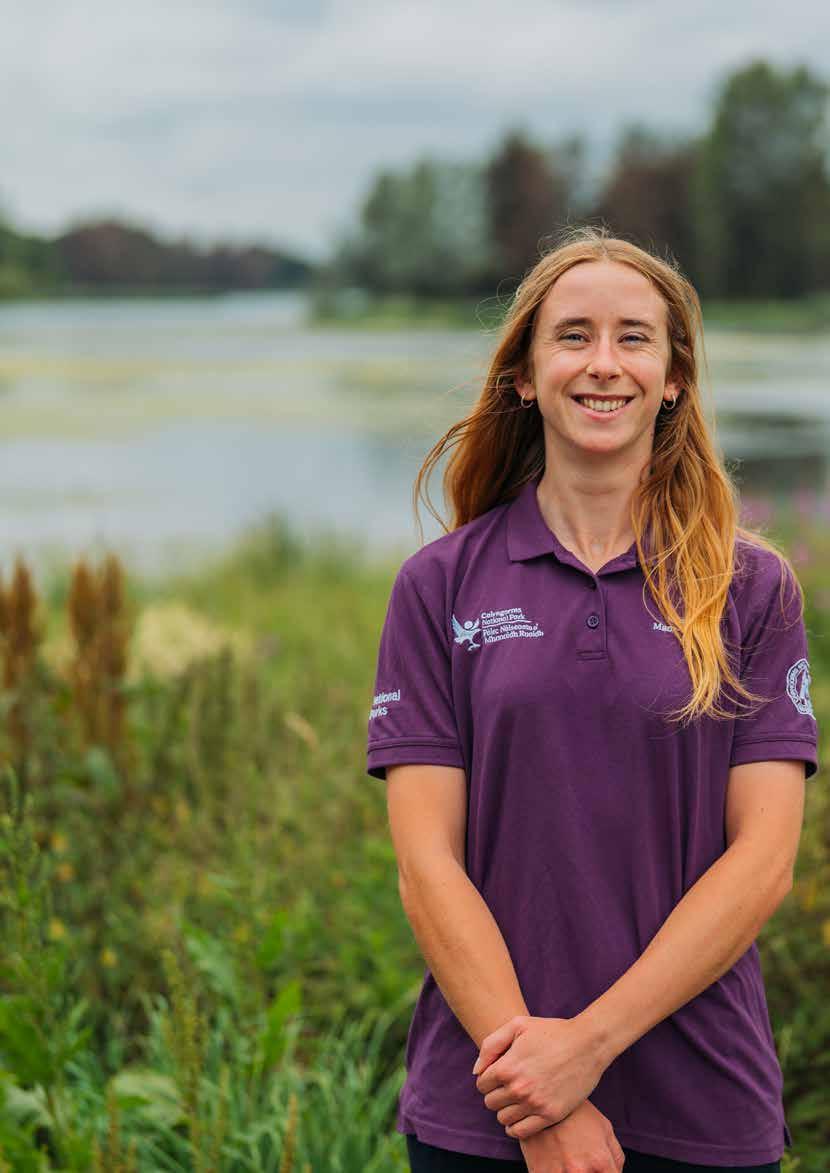
CHLOE HARKNESS
BSC (HONS)
WILDLIFE & CONSERVATION MANAGEMENT
“I grew up in the countryside, and decided I wanted to make a career out of protecting it whilst encouraging others to protect it too. This course explored a variety of topics surrounding conservation management, meaning it was flexible enough for me to gain a wide range of skills and experience whilst also allowing me to specialise if I wanted.
I originally came to SRUC to study Horse Care, as I had heard really good things about the course and SRUC was generally recommended to me as the place to go for studying in the land-based sector. It offered courses that I couldn’t find anywhere else. I enjoyed my first year so much that, when I decided to switch career paths, I stayed – for another five years!
I would say that the amazing field trips and study tours have been a highlight for me. These have taken me from the Isle of Rum, to Romania, to Kenya, and I have met so many inspiring people in the industry who have taught me loads! I’ve really enjoyed camping out while newt surveying, and listening to talks from experts in their fields, and learning how to use everything from a mattock to a chainsaw. I have also made lifelong friends among my classmates, which has been the biggest highlight of all! We even ran a ranger group at Oatridge for a year – the Oatridge Rangers and Countryside Stewards (ORCS) – which is an experience I still heavily draw on for job applications today.
I am now employed as a Seasonal Ranger with the Cairngorms National Park Authority, and hope to continue as a Ranger or in a similar role which combines conservation and visitor engagement. I am also considering travelling for a while after this season has ended, working on conservation projects in different countries. There are lots of possibilities and I’m really excited to see what’s next!”
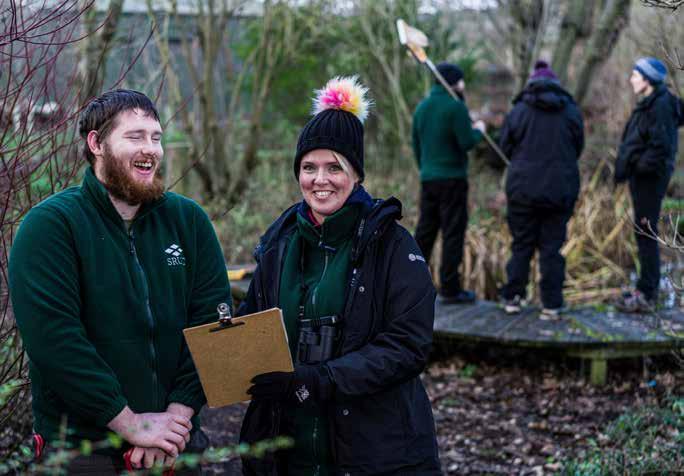
WILDLIFE AND CONSERVATION MANAGEMENT
The earth’s natural resources include air, minerals, plants, soil, water, and wildlife.
Conservation is the protection and care of these resources to preserve and protect them for future generations.
Maintaining diversity of species, genetics, and ecosystems, as well as functions of the environment, are all part of vital conservation work both locally and globally.
Our courses in Countryside Management and Wildlife and Conservation from Modern Apprenticeship & National Certificate to degree and postgraduate level have a common goal: to educate future generations and equip them with the knowledge and skills to carry out the work, research and practices required to protect our natural environment and the species which inhabit it.
We work closely with industry partners to give students hands on experience, including:








Scotland is a country of superlatives for nature. For a small country it contains a broad range of landscapes and habitats – perhaps nowhere else of comparable size in the world has such variety.
RSPB
USEFUL LINKS

Find out more about our courses direct from our students and staff: www.sruc. ac.uk/experience
Find out more about courses related to Wildlife and Conservation on our website: www.sruc.ac.uk/conservation
You might also be interested in learning more about SRUC’s courses in Environmental Management, Forestry, or Rural Business Management.
1 IN 6
1 in 6 species assessed in the UK is at risk of extinction. (State of Nature, 2023)
CAREERS
Graduates from our courses have gained employment with a wide range of organisations such as National Park Ranger Services, Forestry and Land Scotland, Scottish Woodlands, NatureScot, Community Development projects, planning departments, RSPB, Scottish Wildlife Trust (SWT) and the National Trust for Scotland (NTS). They have been employed in posts such as:
• COUNTRYSIDE RANGER
• ECOLOGICAL SURVEYOR
• WILDLIFE WELFARE OFFICER
• NATIONAL PARK MANAGER
• MARINE CONSERVATION SPECIALIST
• PEATLAND ACTION PROJECT OFFICER
• BIODIVERSITY OFFICER
• COMMUNITY DEVELOPMENT PROJECT MANAGER
• OUTDOOR ACTIVITIES LEADER
• ENVIRONMENTAL EDUCATIONALIST
• FOOTPATH WORKER
• ESTATE WORKER
• WILDLIFE MANAGER
Such expertise is needed in both the private and public sector.

SRUC seemed like the ideal place to be, to study and contribute to understanding and tackling the issues that concern the majority of all land and life in Scotland and the rest of the globe.
SCHAUN SHIRKIE
BSc (Hons) Wildlife and Conservation Management
“I chose this course as it was interesting to my personal passions of nature and conservation. SRUC seemed like the ideal place to be, to study and contribute to understanding and tackling the issues that concern the majority of all land and life in Scotland and the rest of the globe. I’d like to contribute in a realistic way to creating a better world for everyone in it.
I returned to further education as an adult and in my opinion education is a gift. Hard work feels like a chore and can be overwhelming, however it is in the moments of overcoming and achieving that we grow, thrive and survive greater and greater challenges, enabling us to better support ourselves and those around us.
My favourite module on the course has been Conflicts Within Wildlife and Conservation Management. It addressed and dealt with real and relevant problems and helped develop extremely valuable perspectives, techniques and skills that will last a lifetime. I’d like to thank SRUC and all of the staff and students for their presence and efforts which contribute to making SRUC the place that it is.”
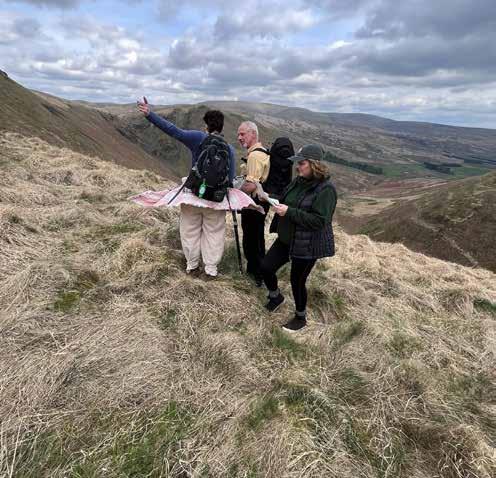
The Scottish Government’s Biodiversity Strategy for 2045 aims to tackle the “nature emergency” with coordinated whole-of government action. Nature recovery is integrated across climate, conservation and land-use policy.

ENVIRONMENTAL MANAGEMENT
The importance of the environment is increasingly recognised in society and includes issues such as climate change, land management, habitat loss, pollution control, sustainable development and energy conservation.
Public awareness of environmental issues is greater than ever before. SRUC offers courses in Environmental Management which will teach you to apply solutions to a wide range of environmental problems based on sound knowledge and practical understanding.
Organisations are increasingly required by legislation to formally
USEFUL LINKS

address environmental issues and impacts. The environmental employment sector is therefore one that is expanding and will continue to do so in the future. Those qualified in this field are not only prepared for jobs in the Environmental sector, but also for a range of jobs across all sectors and industries requiring knowledge of environmental issues.
Find out more about our courses direct from our students and staff: www.sruc.ac.uk/experience
Find out more about courses related to Environmental Management on our website: www.sruc.ac.uk/environment
You might also be interested in learning more about SRUC’s courses in Wildlife and Conservation Management or Rural Business.
CAREERS
Within the environmental sector, previous graduates have worked in areas such as:
• ENVIRONMENTAL AND ECOLOGICAL CONSULTANCY
• ENERGY AUDITING
• ENVIRONMENTAL AUDITING
• RENEWABLE ENERGY CONSULTANCY
• ENVIRONMENTAL PROTECTION
• RECYCLING AND WASTE REDUCTION PLANNING
• ESTATE MANAGEMENT
• ENVIRONMENTAL SYSTEMS MANAGEMENT
• POLLUTION CONTROL
• ENVIRONMENTAL IMPACT ASSESSMENT
• CONSERVATION
The UK aims to reach net zero greenhouse gas emissions by 2050 — Scotland by 2045

The UK’s “green economy” already supports over 500,000 jobs, with millions more needed by 2030 to meet net zero targets (Green Jobs Taskforce).
Scotland’s nature and landscapes are vital to many sectors of our economy, and these may be affected by climate change impacts. Food and energy supply security, water quality and availability, flood risk, cultural heritage, recreation and human health are all likely to be affected.
VALENTINA MAURI DORNELLES
BSc (Hons) Environmental Management

SRUC's Environmental Management courses are accredited by CIWEM, ensuring that the skillsets of our students meet the demands of the profession. CIWEM accreditation offers many advantages such as networking, enhancing career prospects and facilitating a path to Chartership. CIWEM membership is complimentary to students and lasts for the duration of your course.

I chose SRUC because I liked the idea of a smaller classroom and getting out and about in the field a lot
Valentina is from São Paulo, Brazil and is at SRUC’s Edinburgh campus. Valentina chose Environmental Management because she wanted to do a course that provided a hands-on environmental science focus which had an emphasis on practical work in conservation.
Valentina says “My favourite module is Multipurpose Woodland Management because I love being out in the forest and I’m very passionate about woodland conservation.”
“I chose SRUC because I liked the idea of a smaller classroom and getting out and about in the field a lot, which was a key part of my choice to come here. My highlights of the course so far are getting to do field visits with so many industry professionals over the years.”
“I would say to prospective students to keep an open mind to all the modules and topics covered, there’s a lot of interesting stuff to take in so don’t rule anything out even if it doesn’t seem like your vibe at first.”
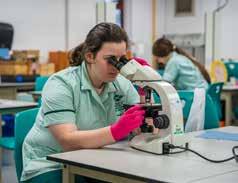
The campus laboratories and proximity to research farms gave opportunities for practical learning and hands-on experience to complement our lectures.
This course offered the practical aspect as well as lecture-based learning, which gave me an opportunity to develop handson experience and practical techniques while studying. This integrated approach to education gives me a competitive advantage when starting my career.
Katie, Environmental Management

PRACTICAL SKILLS

The course
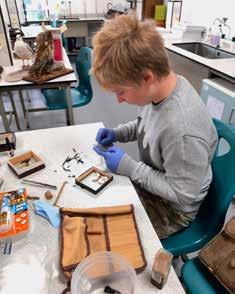

Practical skills and real-life hands-on experience are embedded into every course at SRUC.

As a student at SRUC you do a lot of outdoor and hands-on learning – sampling from rivers, looking at biodiversity, doing engineering by pulling things apart and putting them back together, trips to wind farms to learn about the renewable industry. Of all the education I’ve since gone on to do, my SRUC course was probably the best course I’ve done which allows you to see the subject in real life and fully understand it and grasp it and get you involved in it.
Andrea, Countryside Management
The campus is well set up and resourced to provide practical handson experience with a large variety of animals.
Emma
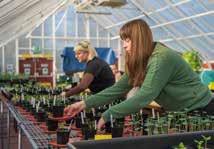

, Vet Nursing
was a blend of theoretical and practical handson work with real industry supported projects to work on.
Allister Engineering
Elise, Animal Science
A COURSE CURRICULUM FOR TOMORROW SRUC:
SEEDABLE is SRUC’s award-winning curriculum development project that embeds vital enterprise competencies across all our teaching programmes.
SEEDABLE as an acronym describes the key elements of the project which incorporates Sustainability, Enterprise, Equality and Diversity through Active and Blended Learning.
The changes to our course content brought about by this project will support you to develop an enterprising mindset, building essential entrepreneurial knowledge and skills, to enhance the sustainable business skills of the next generations.

Creating a sustainable future, including tackling climate change and reversing nature loss, is a huge challenge, requiring global collaboration.
It requires good decision-making and engagement with complex social, economic and environmental challenges. Embracing these challenges is at the core of our ethos at SRUC.
Many of our courses share a common goal of the responsible management of our natural resources and environment. Combining our world class research with academic staff from a wide range of industry specialisms and working with relevant business partners, ensures we can equip you with the latest knowledge, processes and technology to support these principles, preparing you for a range of exciting careers helping safeguard our delicate planet.
Protecting areas of land to preserve valuable environmental and cultural features important for ecosystem service provision can contribute to UN Sustainable Development Goals by enhancing good health and wellbeing, contributing to sustainable cities and communities, and protecting life below water and on land.

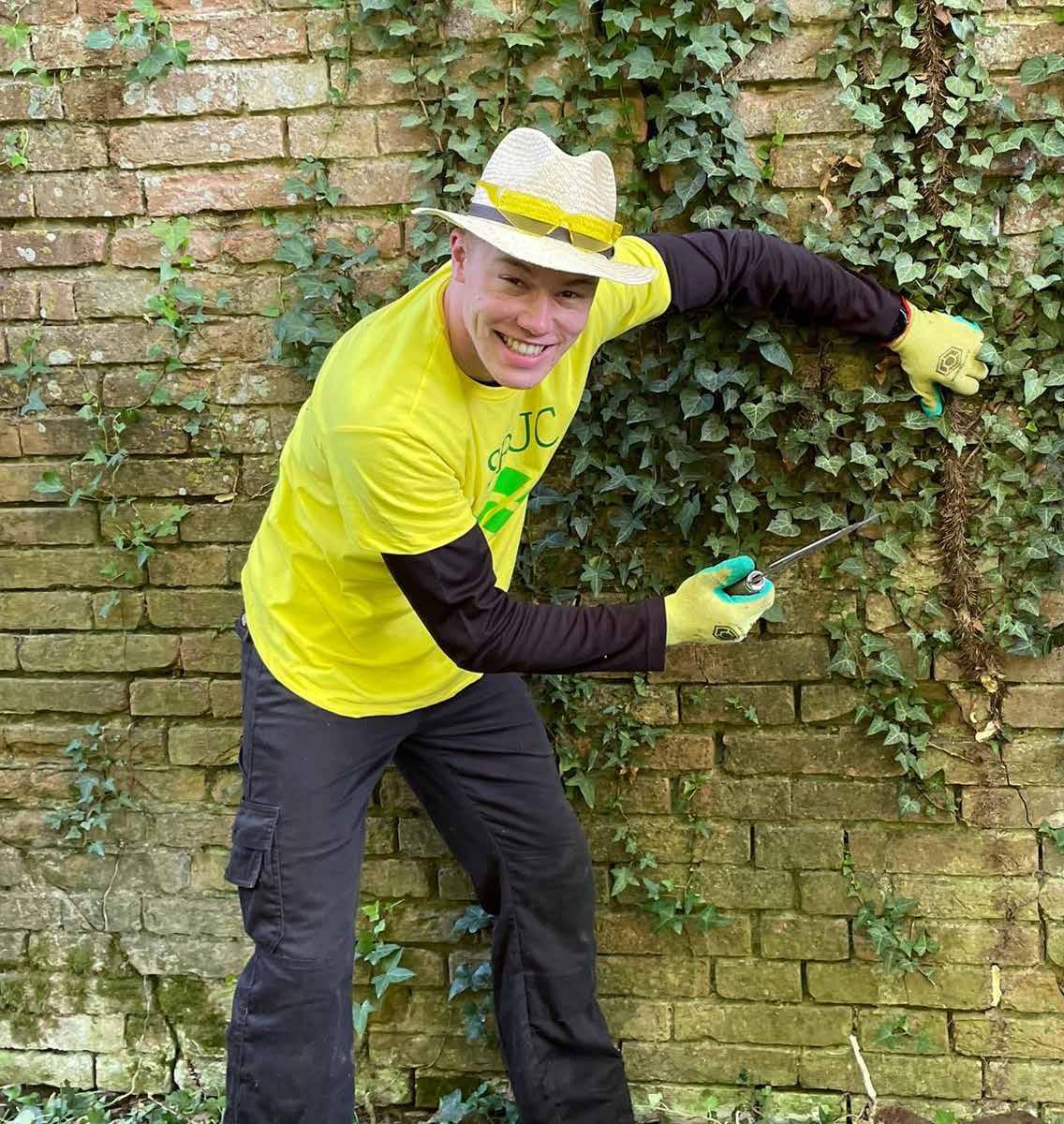
HORTICULTURE
Practical, scientific, and industry-approved, a qualification in Horticulture will allow you to enter one of the largest and fastest growing employment sectors in the UK and beyond.
Horticulture is a diverse and dynamic industry that encompasses the commercial production of: fruit, vegetables, flowers and ornamental plants. It also includes the design, establishment, and maintenance of: parks and gardens, leisure and sports grounds, open spaces and managed landscapes. It is a profession which offers a diversity of jobs to suit a wide range of talents. The profession also needs researchers, technologists, marketing experts and managers to shape the industry for the future. SRUC delivers not only expert knowledge and excellent facilities, but the practical skills and industry connections which will lead you to successful employability in this varied sector. At SRUC we firmly
believe that as well as having an indepth and thorough knowledge of the Horticulture industry; graduates must also be equipped with the practical skills necessary for continued successful employability. These skills are enhanced via work experience placements, practical classes, and a variety of industry visits and guest speakers, and students benefit from studying in an institute renowned for its research and consultancy to industry.
88% of British adults agree having access to a garden or public green spaces is important to them. 88%

The combined UK horticulture and landscaping industry contributes over £28 billion to GDP.
CAREERS
A qualification in Horticulture can open up a wide range of career possibilities, at all levels of the industry including:
• ENTREPRENEUR AND SMALL BUSINESS OWNER
• GARDENER
• DESIGN AND BUILD OPERATIVE
• CONTRACT MANAGER
• RETAIL AND GARDEN CENTRES
• FRUIT AND CROP PRODUCTION
• PRODUCTION HORTICULTURE AND NURSERIES
• SCIENTIFIC RESEARCH
• CONSERVATION
Some graduates will work in the maintenance and management of public and private green spaces such as parks, gardens, National Trust properties, botanic gardens and community gardens. Other opportunities include journalism, television, teaching, advisory work, restoration of historic gardens, landscape reclamation, marketing, and horticultural therapy.

FACILITIES
SRUC’s campuses are equipped with the practical resources necessary to support you on your course including extensive campus grounds, greenhouses, gardens, workshops, design studios, landscaped areas, as well as the scientific facilities, such as research laboratories and vertical farm, to support study of the subject to degree level.
Horticulturists of all disciplines must have a multitude of skills including; science, technology, design, plant knowledge and excellent practical abilities. At SRUC these skills are enhanced via experienced tutors, industry visits, real-life projects and students benefit from studying in an institute renowned for its research and consultancy to industry.
USEFUL LINKS

At SRUC, you can study horticulture from entry-level National Certificates right through to specialist honours degrees, giving you a flexible pathway to the qualifications you need for the career you want. Whether you’re just starting out, looking to retrain, or ready to deepen your expertise, our progression routes help you forge a path to your desired outcome.
Horticulture is a growing sector, with rising demand for skilled professionals who understand horticulture in the context of sustainable land management, biodiversity, and climate resilience.
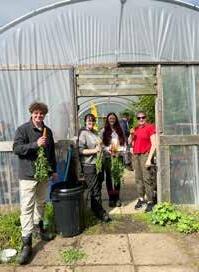
Find out more about our courses direct from our students and staff: www.sruc.ac.uk/experience
Find out more about courses related to Horticulture on our website: www.sruc.ac.uk/horticulture
You might also be interested in learning more about SRUC’s courses in Environmental Management or Agriculture.
SRUC:
HORTICULTURE SPECIALISMS
Horticulture is a significant contributor to the UK economy, and specialist horticultural knowledge is vital to address fundamental societal challenges such as food security, biodiversity loss, and climate change.
SRUC’s Horticulture degree programme embeds horticulture within an environmental context, exploring the interplay between plants and people while honing your scientific research skills. It offers specialist streams in either Plant Science and Technology or Plantsmanship.

JET HADDOW
BSc (Hons) Horticulture (Plant Science and Technology)
“My dream job was to be the Head Gardener of an estate, so I signed up for the HNC Horticulture. Through that course I learned about so many facets of horticulture that I had never considered before, and my curiosity has lead me down a more scientific route via the Production Science HND.
Plant Science and Technology
The Horticulture (Plant Science and Technology) stream draws on the research expertise of SRUC and offers access to cutting-edge facilities such as our new Vertical Farm, enhanced glasshouse facilities, and dedicated laboratories such as the phytotechnologies laboratory.
You’ll have the opportunity to engage in real-world research alongside ongoing projects spanning sustainable practices, engineering, and climate change, providing invaluable opportunities for practical application and exploration.
Modules cover plant science, crop production, precision technologies, and the sustainability of food production, and delve into emerging fields such as urban food production and horticultural biotechnology, equipping you with the expertise needed to tackle the challenges of tomorrow.
Plantsmanship
I love the whole course. It is a very hands-on course ranging from lab work to building a green wall and everything in between, which very much suits my learning style. The staff and lecturers are brilliant, engaging and always happy to help. My peers are also fantastic; I love being among like-minded people.
A late diagnosis of ADHD (with a suspected side of autism) while in second year certainly explained a few things! But Student Support have been fantastic, helping me adjust my learning style to work with my brain instead of against it.
I work part time in a plant nursery while studying, but not entirely sure what I want to do when I’m finished. It will probably have something to do with producing food though, either through research to improve crops, or vertical farming.“

The Horticulture (Plantsmanship) courses are taught jointly by SRUC and the Royal Botanic Garden Edinburgh (RBGE) and as a student you have direct access to the vast resources of both institutions.
The RBGE is world-renowned for its rich collection of plant species and conservation work. The landscaped gardens, botanical collections and expertise of RBGE staff offer a unique learning resource unparalleled in Scotland.
The Plantsmanship stream allows you to explore the intricacies of botanical and conservation horticulture, heritage gardens and public spaces. Modules such as plant geography and plant taxonomy underpin plant cultivation and horticultural practices.
Unearth the dynamic interplay between plants, people, landscapes, and the environment, and embark on a path of discovery in plant evolution and diversity.


TAMMY FRENCH
HND HORTICULTURE (PLANTSMANSHIP)
“I’ve always had a passion for nature and wildlife, whether appreciating the forests and glens in the highlands or growing my own food from windowsills in my flat. After 12+ years in higher education administration I decided to switch careers to have more hands-on contact with plants and places I love! I found the library incredibly helpful. I was able to borrow a laptop each day, and it was a helpful quiet study space.
I chose SRUC as I was keen to have plenty of practical hands-on experience and the opportunity to hear from amazing experts in the field. Highlights for me have been the opportunity to visit and learn in some amazing places such as the Royal Botanic Gardens Edinburgh, Benmore and Dawyk Botanic Gardens, Scone Palace, and Carrifran Wildwood.
Working on practical projects such as ecological surveys and work placements helped cement the skills I was learning. I have secured a job with the Soil Association Scotland, supporting their Food for Life programme. I learned so much from the people I met along the way and made great memories in the process.”
GOLF AND GREENKEEPING
SRUC boasts a rich heritage in offering Golf and Turf Management courses, many accessible through distance learning. With over 30 years of expertise, the Golf team leads in golf education, attracting students worldwide.
Our graduates gain a broad perspective of the industry whilst developing their skills and knowledge in those areas most relevant to working on golf courses and moving into management positions.
A primary focus for SRUC involves integrating sustainability and innovation throughout our golf curriculum. This is showcased in our brand new Sustainable
Golf Management degree programme.
Our courses aim to cultivate a workforce capable of navigating the evolving challenges within the game, encompassing high quality playing conditions, economic sustainability, climate change, efficient use of resources, biodiversity, and legislation relevant to a global industry.
38,000
There are over 38,000 golf courses in the world, including courses in over 80% of countries worldwide.
Scotland has more golf courses per capita than anywhere else in the world.
The Scottish golf industry supports around 20,000 jobs across tourism, turf management, and retail and is a £1 billion industry.


USEFUL LINKS

Employment opportunities existing for those with qualifications in Sports Turf and Golf Course Management include: CAREERS
• GREENKEEPER
• SUPERVISOR AND TECHNICIAN
SPECIALIST ROLES
• MACHINERY MECHANIC
• GOLF OPERATIONS
• GOLF COURSE MANAGER
• SPORTS GROUND MANAGER
• EVENT MANAGEMENT
• GOLF COURSE DESIGN AND CONSTRUCTION
• DIRECTOR OF GOLF
• FACILITIES /ESTATES MANAGEMENT
• AGRONOMY CONSULTANT
• ENVIRONMENTAL RESEARCH & ADVISORY
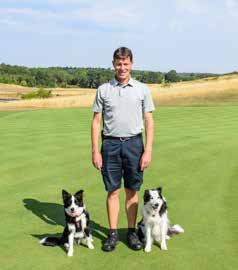
LEE SAYERS
Golf Course Management
When Lee started playing golf at 16, he never imagined that one day he would be managing the golf course. Lee’s first job after leaving school was for NatWest bank, followed by a job selling advertising for a regional newspaper. They were both well paid and good industries, but both were office-based. Lee says: “I hated it and realised I wanted a career where I could be outside. I also needed something with an end product that I could see. When you rake a bunker or cut a green you can see the impact that you’ve made.”
After breaking into the golf industry through some periods of volunteering, Lee soon realised that to progress into a supervisory role, experience on its own was not enough. He embarked on the Golf Course Management distance learning course at SRUC.
“I entered the industry when a lot of head people didn’t have qualifications. In the 1990s you needed the experience and the education to progress. Without the qualifications I wouldn’t have got on. It is really important and even more so for the new guys coming through today.”
The job satisfaction is the reason people do the job. Put your best foot forward, go for it!
Find out more about our courses direct from our students and staff: www.sruc.ac.uk/experience
Find out more about courses related to Golf and Greenkeeping on our website: www.sruc.ac.uk/golf
You might also be interested in learning more about SRUC’s courses in Horticulture or Environmental Management.
Not long after graduating Lee was offered his first Golf Course Managers role. “The qualification along with my work experience were pivotal in me getting the role.” Since then, he has progressed through various Golf Clubs, and is now Estates and Golf Courses Manager at London Golf Club.
“Greenkeeping is a great industry to get in to. You want to work for a good employer who will develop you and really bring you on. The job satisfaction is the reason people do the job. Put your best foot forward, go for it!”
Well-managed golf courses can offer green corridors and biodiversity value, especially in urban and agricultural landscapes. Poorly managed courses may contribute to high water usage and runoff pollution — hence the importance of sustainable design and management.

Student Support
Starting a new course is a time when all students will need support in one form or another.
You’ll be facing all sorts of new challenges – managing your finances, balancing time commitments, and possibly working and juggling family responsibilities. Our approachable student support teams are here to help with any issues you encounter. You may also need some academic support to help you get the most out of your studies.
If you find you need help, you’ll have the reassurance that support is readily available. If you have any support needs or questions, it is usually best to contact us as soon as possible, even before you start your course or your application.
Visit www.sruc.ac.uk/studentsupport for further information and contact details. All students, whether you have (or suspect) a disability or not, are encouraged to fill out our student support form. We will send it to the student support team at your campus who will use it to make sure you get any support you need.
Useful Links:
www.sruc.ac.uk/studentsupport
www.sruc.ac.uk/connect/about-sruc/policies-compliance/equality-diversity-inclusion


“I was pretty sure, from my past experiences, that I had dyscalculia. I spoke to study support and they ran some checks, so it wasn’t a surprise when they turned out to be positive. What was a surprise was that I have dyslexia too! It was good to find out, and they made adjustments and gave me support and both have been brilliant.”
Sarah Powell Horticulture (Plantsmanship)
“The staff (both academic and non-academic) are all great and there to answer any questions quickly. I was really impressed with how information on where to get support was passed on to us on day one, so you know it’s available if you ever need it.”
Mia Storrier, Horticulture (Plantsmanship)
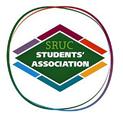
SRUCSA is an organisation run by SRUC students, for SRUC students. It exists to ensure the best possible student experience for all those studying at SRUC.
Every SRUC student is automatically a member of SRUCSA and anyone can get involved in helping to run the association. SRUCSA is here to amplify student voices. SRUCSA officers make sure your opinion is heard by SRUC, representing you at meetings, and putting on events to ensure you have a great time whilst studying.
For more information, take a look at the SRUCSA website www.srucsa.org.uk or connect with @SRUCSA on social media.


Careers Services
The courses offered at SRUC are varied and open up a huge range of possible career paths.
The Careers Service is here to help you with any of your career, employability or continuing education queries. Our dedicated careers advisers will help you research and plan your future career or next course choice. They can support you with writing your CV and gaining interview skills.
Visit www.sruc.ac.uk/careers for further information.

Finance and Funding
For many students, financing their studies will be one of the biggest worries when considering starting a course.
Fees and funding arrangements vary greatly depending on the type and level of your course, on your personal circumstances, your nationality and where you live, and whether you have had funding to study before.
Visit www.sruc.ac.uk/tuitionfees for further information.
Useful Links: SRUC Bursaries
www.sruc.ac.uk/bursaries
Scotland: Student Awards Agency Scotland (SAAS) www.saas.gov.uk
England: Student Finance www.gov.uk/student-finance
Northern Ireland: Student Finance NI www.studentfinanceni.co.uk
Wales: Student Finance Wales www.studentfinancewales.co.uk
Student Loans Company: www.gov.uk/government/organisations/ student-loans-company
Scotland Education Maintenance Allowance (EMA) www.mygov.scot/ema
Skills Development Scotland: www.skillsdevelopmentscotland.co.uk
Student Budgeting Planner: www.moneysavingexpert.com/students/ student-budgeting-planner

Pathways
SRUC offers courses at a wide range of levels, from access courses to PhDs. We try to offer students as much flexibility as possible in their studies; many of our courses are offered part-time as well as full-time and some by online distance learning.
If you are unsure which level of course is right for you please contact us for advice. You can also take a look at the Entry Requirements pages for comparable qualifications. Further information about all the below can be found on our website: www.sruc.ac.uk/study-with-us/study-options
Full-Time
The time commitment and number of contact hours for full-time study varies by course. If you would like further detail, such as example timetables, please contact us and we will put you in touch with the Course Leader.
Part-Time
As a part-time (on-campus) student you study alongside full-time students but take fewer modules/classes each year. Typically, part-time students study at half the rate of full-time, so a Diploma course would take you 4 years instead of 2.
Distance Learning
SRUC offers a number of distance learning courses which are studied at home and usually part-time. On some courses students may be required to attend occasional weekend or one-day study schools during the course, where field work, case studies and practical assessments can take place.

Returning to Learning
We know there's no such thing as a typical student. Returning to education after a break from being in a learning environment can be a little daunting. SRUC has a supportive and flexible approach to learning, and our students come from a range of backgrounds. We particularly welcome the diversity of life experiences that mature students bring into the learning environment and are delighted with the interaction and group bonding that emerges between those who join SRUC straight from school or college, and those who have taken a break from formal learning.
Advanced Entry
If you have appropriate qualifications such as HNC/HND, CertHE/DipHE, or a Foundation Degree, you may be able to apply for advanced entry into SRUC’s degree courses, to avoid unnecessary repeated years. Contact our admissions team for advice.
Senior Phase School Courses
Our range of senior phase courses give those still at school the opportunity to learn something out of the ordinary.
Courses in topics that you may already be passionate about or interested in exploring as you progress through your learning journey give you an introduction to our broader subject areas from which you may choose to go on to study in a more specialised way.
Currently, the following courses are available, and you can learn more on our website: www.sruc.ac.uk/schools
“Learning to be a student again has definitely been a challenge but SRUC feels like a really supportive and encouraging atmosphere, whether you’re coming straight from school or a little later in life.”
Emily Willing Wildlife and Conservation Management

Progression
Those who have the appropriate higher level school qualifications are able to apply for a degree course and will study with us for 3-4 years until they graduate, just like with any other university.
Some of our students however may take different routes through the courses offered. Some students may apply initially for a HNC / CertHE or HND / DipHE and then continue onto a degree once they have completed those first 1-2 years. Others begin on college level qualifications such as National Certificates, and decide to stay with us progressing from one level of study to the next.

JAMIE HOUSTOUN
NC AGRICULTURE
HND AGRICULTURE
BSC AGRICULTURE
“I really enjoyed my time at SRUC, I made great friends and had a lot of fun. The Agriculture course helped develop my knowledge of some of the sectors I wasn’t so familiar with, even coming from a farming background I still feel I learned a lot.
Being able to come in at an NC level with little school qualifications suited me really well, it then allowed me to progress up to a degree level which I never expected.
After I graduated, I travelled to New Zealand where I worked on farms for six months. Once I got home I bought in some of my own ewes and have been building my own flock over the last couple of years. I also work as an Agricultural Consultant with SAC. Studying modules on policy during the course helped my knowledge within the consulting job and allowed me to be in a stronger position when initially applying.”


Training Courses
SRUC offers a wide range of short training courses which seek to address workforce skills gaps and give our students the opportunity to gain industry recognised tickets and hands on training from the outset of your learning journey and career.
We provide training in a range of activities from tractor driving and chainsaw operation to drone and GIS use; specialist livestock courses and peatland restoration project management.
Visit www.sruc.ac.uk/training for more information and course listing.

Apprenticeships Work
An Apprenticeship gives you the opportunity to earn a salary whilst gaining work experience and a nationally recognised qualification.
To start an apprenticeship, you must already be in employment. Learning whilst at work on an apprenticeship programme, requires a three-way agreement between you the student, SRUC, and your employer. SRUC’s specialist team tie together these opportunities –take a look at our website for their contact details: www.sruc.ac.uk/ apprenticeship There are a range of apprenticeships at different levels available to anyone aged over 16. The most common entry level programme is a modern apprenticeship which normally take between 1–3 years to complete.
KATIE TURNER
MA VET NURSING
“I have always had an interest in animals from a young age, always wanting to understand them, learn about them and be able to interact with them. When my own pet became unwell as a child I had a strong sense of wanting to understand why, and what could fix it. This curiosity stuck and continues to develop.”
“My role as veterinary nurse involves caring for a variety of patients from prep, through procedures and into recovery. It also includes communicating and providing education to clients during consults, carrying out lab work, dispensary work, taking radiographs and phlebotomy. I most enjoy my patient care but I am enjoying exploring the full range of skills and responsibilities that veterinary nursing has to offer. I find developing relationships with the patients and clients very rewarding as I am conscious that I may be present for some positive times and some sadder times in their lives. I enjoy being able to make a difference to them.”


Postgraduate Study
Once you have completed an Honours degree you may decide to further your specialist knowledge or career enhancement with postgraduate study.
SRUC offers a number of MSc and Postgraduate Diploma courses, both full-time on-campus, and part-time by distance learning, or you could even embark on a project with one of our internationally respected research teams and work towards gaining your PhD! SRUC prides itself on developing its students and staff to become leaders in a sustainable future.
SRUC works with industry-leading experts in the land-based sector whose knowledge and cutting-edge research feed into the courses to ensure what is being taught is always current, relevant and useful. This is vital in this sector, where new technology, scientific findings and government legislation all contest to drive the industry forwards.
Visit www.sruc.ac.uk/postgraduate for information about postgraduate study, or www.sruc.ac.uk/research to learn more about SRUC’s research capabilities, facilities, and expertise.
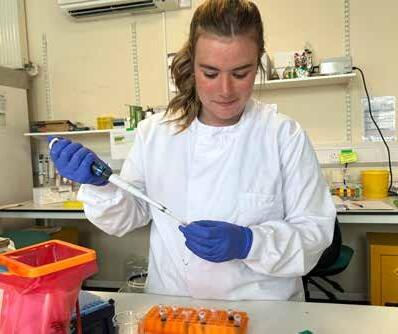

Micro-credentials
Micro-credentials are bite-sized accredited courses for continuing or professional development.
They are all delivered by SRUC lecturers, who are experts in their field, and specifically designed to support learners wishing to keep pace with the fast-changing needs of society and industry. Importantly, our micro-credentials are 100% online and self-paced, meaning you can study anywhere, anytime and can fit your learning in around your working and home lives.
Visit www.sruc.ac.uk/microcredentials to see the subjects on offer.

HAYLEY WHYTE
MSC WILDLIFE AND CONSERVATION
“I have thoroughly enjoyed the course content so far. From Ecological Surveying and Assessment to Planning and Sustainability, it has been very informative and inspiring. I like that the assignment formats are varied too – one day I am writing an Environmental Impact Assessment for a windfarm development, the next recording a vlog about forestry management. There are many aspects of wildlife and conservation management that really interest me, so I am not completely certain which career route I will decide to take yet. However, I do know that spending more of my time working outdoors in nature is important to me. By switching my career to pursue something I truly care about, I hope to feel proud at the end that my impact on this planet has been mainly a positive one.”

www.sruc.ac.uk/admissions
SRUC offers courses at a number of different academic levels and delivery formats – the way you apply is different for each and can be summarised as follows:
Do you want to study...

Your application timeline
OTHER COURSE: NOT DEGREE, HND OR HNC COURSE
Locate your course online at www.sruc.ac.uk/courses and apply using the online form (or contact us for a paper copy)
DEGREE, HND OR HNC COURSE
Locate your course on the UCAS website www.ucas.com and apply using their application system
Contact SRUC online www.sruc.ac.uk/WBL
To apply, you’ll need qualifications (as defined in the entry requirements on our website), a personal statement saying why you would like to study the course, and a reference from someone who knows you, such as a teacher. For some courses you may also need to come in for an interview or provide evidence of relevant work or practical experience.
If you are applying for a degree or other Higher Education course, you should apply by the UCAS January deadline. The exception is the BVSci Veterinary Science course that uses the UCAS October deadline. Visit www.ucas.com for guidance. We do accept “late” UCAS applications but some of our courses may already be full once the first round of applications have been processed. For other courses, you apply directly through SRUC’s website. Other courses may also have application deadlines; these will be clearly marked on the course pages on our website.
Once
you have submitted your application, the Admissions team will review it and decide whether they are able to offer you a place.
You may have to wait a little while for a decision as SRUC likes to consider groups of applications together as places on courses are often limited. You may also be called to an interview. Your decision will be sent to you via SRUC or UCAS (whichever route you applied through) and if you have been made a conditional (e.g. dependent on exam results) or unconditional offer, you may also receive further information from us inviting you to attend an Offer-Holder Day. Offer-Holder Days are much more hands-on than Open Days, and are normally held in April. If you apply or get your decision later, don’t worry; if you haven’t had chance to visit the campus we continue to have Open Days in May/June and August, so please come along to one of those.
Entry Requirements
We list entry requirements on our website, in the course overview section for each course.
Below is an example of how this information is presented:

• Four Highers (BBCC) to include a Science subject, Geography or Psychology
• National 5 (A-C) or equivalent pass in English and Maths
Comparable Qualifications:
3 A-Levels BCC, including a Science subject or Geography, with GCSE passes in Maths and English.
JCPA plus 4 Irish Leaving Certificate subjects at Higher Level at H3, H3, H3, H3, including a Science subject or Geography.
Our aim, like yours, is to find a course that is right for you. We are as flexible as we can be with our entry requirements, while aiming to ensure that each student is able to achieve the required academic standard to be successful. Maturity, work experience, and motivation are recognised as alternatives to formal qualifications wherever possible. SRUC also accepts a wide range of access-level and nonstandard qualifications.
Comparable Qualifications

SRUC’s entry requirements are usually given in terms of current Scottish qualifications, but we accept a wide range of qualifications as comparable. You can find a couple of examples below and you can download our comparable qualifications table for an easy overview via the QR code.
A-Levels
Degree courses which require 4 Scottish Highers at BBCC require 3 A-Levels at BCC.
Higher Certificate/Diploma courses which require 2 Scottish Highers at CC require 2 A-Levels at DE.
Irish Leaving Certificate
Degree courses which require 4 Scottish Highers at BBCC require 4 Irish Leaving Certificate subjects at Higher Level at H3, H3, H3, H3.
Higher Certificate/Diploma courses which require 2 Scottish Highers at CC require 2 Leaving Certificate subjects at Higher Level at H3, H4.
The qualifications and grades you need will vary by course and may also depend on whether you are a widening access or mature student as well as aspects of your personal background. You can access more information by searching for the SRUC Contextual Admissions Policy, available on our website.
Am I A Widening Access Student?
We aim to identify each applicant’s full talent and potential and look beyond grades to do this. We consider you to be a widening access student if you:
• have successfully completed a pre-entry programme
• live in a target postcode area or
• are care experienced or a young carer.
SRUC are proud to support SWAP (Scottish Wider Access Programme) and other regional initiatives such as LEAPS, Lift Off, ASPIRENorth and Focus West. If you have participated in any of these programmes please do mention this in your application.
E: admissions@sruc.ac.uk
T: 0131 535 4480
General Minimum Entry Requirements
The minimum academic entry requirements for each course can be found on our website.
Entry requirements are usually given in terms of Scottish qualifications, though a wide range of qualifications are accepted as comparable. In all courses except those defined as 'access courses' applicants are required to demonstrate evidence of basic literacy and numeracy skills.
International Students
There are many reasons to choose to study abroad, to study in Scotland, and to study at SRUC.
Coming from outside of the UK to study at SRUC requires validation of qualifications already held and proof of competence in spoken and written English. There is further information on our website to help you to identify what you need in order to come and study at SRUC.
Useful Links
www.sruc.ac.uk/international
UKCISA www.ukcisa.org.uk
Student Visas www.gov.uk/student-visa
Entry Requirements Summarised
SRUC offers courses at all levels of study, from access courses requiring no formal qualifications, through to postgraduate level study where relevant previous study can be vital.
Entry requirements are listed on the individual course pages on our website. Some courses have specific requirements in terms of required subjects as well as numbers and levels of qualification. Please check the website for additional detail about all our courses, and to make sure you are seeing the most up-to-date information.
College Certificate and Diploma courses
Typically, these courses require a number of either National 4s or National 5s or GCSEs.
National Certificate NC
National Certificates span several academic levels of study as defined by the Scottish Credit and Qualifications Framework (SCQF). Introductory courses (at SCQF Level 4) often require no, or very few, formal entry requirements. Some require evidence of numeracy and literacy (e.g. an English and Maths qualification). Some NCs at slightly higher levels will require a number of National 4s, and National Certificates which are at SCQF Level 6 will require one or two National 5 qualifications as well.
Higher Certificates and Diplomas HNC/HND, CertHE/DipHE
Higher level certificate and diploma qualifications will always require formal evidence of literacy and numeracy, usually in the form of National 5/GCSE English and Maths.
For more information on comparable qualifications and entry requirements, see p53 or search SRUC's website for Comparable Qualifications.
Specific entry requirements can be summarised as below:
COURSE TITLE ENTRY REQUIREMENTS
Agriculture HNC Agriculture HND
Animal Care HNC
Environmental Management HNC
Wildlife and Conservation Management HNC
Environmental Management HND
Wildlife and Conservation Management HND
Equine Science and Management CertHE*
• Two Highers (CC) preferably including a science or geography.
• National 5 / GCSE pass grades in English and Maths. Alternative entry qualifications like a related National Certificate are also accepted.
Two Highers (CC) including two from English, Maths or a science subject.
• National 5 / GCSE pass grades in English, Maths and Biology.
Minimum of one week of work experience in the industry.
Successful completion of NC Animal Care will be considered.
• One Higher (C) in a relevant subject.
• National 5 / GCSE pass grades in English and Maths. Alternative entry qualifications such as a related National Certificate, are also accepted. Applicants with a mature attitude who are seeking a change in career will be assessed individually.
Two Highers (CC) including relevant subject.
• National 5 / GCSE pass grades in English and Maths. Alternative entry qualifications such as a related National Certificate, are also accepted. Applicants with a mature attitude who are seeking a change in career will be assessed individually.
• Two Highers at CC to include English or a science subject.
National 5 / GCSE pass grades in English, Maths, and a science subject.
Plus two weeks of practical work experience and recorded evidence of your riding ability.
Successful completion of the NC Horse Care or Advanced Certificate Horse Care will also be considered.
Forestry HNC Two Highers (CC), preferably including a science or geography.
• National 5 / GCSE pass grades in English and Maths. Equivalent qualifications, such as the Advanced Certificate in Forestry & Arboriculture, are also accepted.
Appropriate employment experience in other sectors will also be considered.
COURSE TITLE ENTRY REQUIREMENTS
Game and Wildlife Management HNC
Horticulture HNC
Horticulture (Landscape Design) HND
Horticulture (Plantsmanship) HND
Horticulture (Production) HND
Poultry Production HNC
NC Gamekeeping or equivalent level 5 award.
Relevant industry experience associated with the gamekeeping or countryside management sector.
Different combinations of relevant national qualifications, vocational qualifications and equivalent qualifications from other awarding bodies may also be acceptable.
• Two Highers (CC) including a science subject.
• National 5 / GCSE pass grades in English and Maths. Alternative entry qualifications, such as a related National Certificate, are also accepted.
Applicants with a mature attitude who are seeking a change in career will be assessed individually.
• Two Highers (CC) including a science subject.
National 5 / GCSE pass grades in Maths, English and a science subject.
Other equivalent qualifications are accepted and mature applicants with alternative qualifications and/or work experience are encouraged to seek guidance from the college.
Work experience at a poultry production facility or with back yard poultry would be beneficial.
Rural Business Management HNC
Rural Business Management HND
Rural Veterinary Technology CertHE*
Rural Veterinary Technology DipHE*
Sustainable Golf Management CertHE*
Sustainable Golf Management DipHE*
• Two Highers (CC)
• National 5 / GCSE pass grades in English and Maths. Other equivalent qualifications are accepted and mature applicants with alternative qualifications and/or work experience are encouraged to seek guidance from the college.
Provisional entry requirements, to be confirmed:
• 3 Highers (BBC)/2 A-Levels (BC) to include Biology at B plus one other science subject.
National 5 / GCSE pass grades in English, Maths, and a science subject.
Provisional entry requirements, to be confirmed: Two Highers (CC)
• National 5 / GCSE pass grades in English and Maths. Other equivalent and vocational qualifications are accepted and mature applicants with alternative qualifications and/or work experience are encouraged to seek guidance from the college.
Degree Courses BA (Hons) / BSc (Hons)
Degree qualifications will always require formal evidence of literacy and numeracy, usually in the form of National 5/GCSE English and Maths.
For more information on comparable qualifications and entry requirements, see p53 or search SRUC's website for Comparable Qualifications.
Specific entry requirements can be summarised as below:
COURSE TITLE ENTRY REQUIREMENTS
Rural Business Management
BA/BA (Hons)
Wildlife and Conservation Management
BSc/BSc (Hons)
Horticulture (Plant Science and Technology)
BSc/BSc (Hons)
Horticulture (Plantsmanship)
BSc/BSc (Hons)
No specific subjects required.
• Four Highers (BBCC) OR 3 A-Levels (BCC)
• National 5 / GCSE pass grades in English and Maths.
Other equivalent qualifications are accepted and mature applicants with alternative qualifications and/or work experience should seek guidance from the college.
A science subject.
Four Highers (BBCC) OR 3 A-Levels (BCC) including a science subject.
• National 5 / GCSE pass grades in English and Maths.
Alternative entry qualifications, such as a related National Certificate, are also accepted.
COURSE
TITLE ENTRY REQUIREMENTS
Animal Welfare Science
BSc/BSc (Hons)
Applied Animal Science
BSc/BSc (Hons)
Equine Science and Management
BSc/BSc (Hons)
Agriculture
BSc/BSc (Hons)
A science subject.
• Four Highers (BBCC) OR 3 A-Levels (BCC) including a science subject.
• National 5 / GCSE pass grades in English and Maths.
Plus two weeks of practical work experience and recorded evidence of your riding ability.
Sustainable Golf Management BSc/BSc (Hons)*
Biology or Chemistry.
Standard Entry Requirements:
• Four Highers (ABBB) OR 3 A-Levels (BBB) including Biology, Human Biology or Chemistry.
• National 5 / GCSE pass grades in English and Maths.
Minimum Entry Requirements:
• Four Highers (BBCC) OR 3 A-Levels (BCC) including Biology, Human Biology or Chemistry.
• National 5 / GCSE pass grades in English and Maths.
Advanced entry into Year 2 is possible with higher qualifications.
Entry requirements still to be confirmed at time of print. Please refer to the website.
A science subject or Geography.
• Four Highers (BBCC) OR 3 A-Levels (BCC) including a science subject or Geography.
• National 5 / GCSE pass grades in English and Maths.
Alternative entry qualifications, such as a related National Certificate, are also accepted.
Veterinary Nursing BSc/BSc (Hons)
Veterinary Science BVSci
For full detail, please refer to the website.
English and a science.
Four Highers (BBBB) OR 3 A-Levels (BBB) including a literary subject (preferably English) and a science (Biology, Human Biology, Chemistry or Physics)
• National 5 / GCSE pass grades in English, Maths and a science.
A minimum of 140 hours (four weeks) of experience in a veterinary practice is required prior to application. You'll need to show evidence of at interview. Any additional qualifications and/or work experience will also be advantageous when applying for this highly competitive course.
• 2 Advanced Highers at BB including one science subject (Chemistry, Physics, Biology) plus
• 5 Highers at AABBB including at least two science subjects (Chemistry, Physics, Biology, Human Biology, or Maths/Applications of Maths) plus
• 5 National 5 (Grades A-C) including Maths/ Applications of Maths (B) and English (C).
• Recent and relevant vocational/work experience is also required.
Comparable Qualifications:
Environmental Management
BSc/BSc (Hons)
A science subject, Geography or Psychology.
• Four Highers (BBCC) OR 3 A-Levels (BCC) including a science subject, Geography, or Psychology.
• National 5 / GCSE pass grades in English and Maths.
3 A Levels at ABB including one science (Biology, Chemistry, Physics, Maths), plus 5 GCSEs (Grades A/9-C/4) including English (C/4) and Maths (B/6) JCPA with 5 subjects including English (Merit or above) and Maths (Merit or above) plus 5 Irish Leaving Certificate subjects at Higher level (H1, H2, H2, H3, H3) including at least 2 science subjects (Agricultural Science, Biology, Chemistry, Physics, Maths).

Campuses and Accommodation
SRUC offers a choice of campus locations. You can read more about each location by visiting our website www.sruc.ac.uk/campuses and you can find virtual tours of each location on our Virtual Student Experience site www.sruc.ac.uk/experience
Accommodation provision is slightly different at each campus; some campuses offer SRUC student accommodation, and in other locations we work with local providers and partners.
CAMPUSES
1. Craibstone, Aberdeen
2. Elmwood, Cupar, Fife
3. King's Buildings, Edinburgh
4. Oatridge, West Lothian
5. Queen's Park, Glasgow
6. Barony, near Dumfries
Important information
The information contained within this prospectus is correct at the time of writing in June 2025. You should always check our website for the most up-to-date information.
This prospectus is intended as a guide for applicants for courses delivered by SRUC. In compiling it, we have made every effort to be as accurate as possible, however omissions, errors or subsequent changes can occur. We may need to make changes to or discontinue courses or withdraw or replace facilities if such action is reasonably considered to be necessary. We will take steps to inform applicants and students at the earliest opportunity of any significant changes to, or suspension/cessation of, a course. Learning activities and example course content included in this prospectus are given as examples and inclusion does not guarantee they will be offered each year. Additional information will be sent to you if you are made an offer of a place on a course – a copy of this can be requested by emailing admissions@sruc.ac.uk 1 2 3 4 6 5


Environmental Impact
SRUC is an institution working hard every day to share knowledge and discover solutions to some of the world’s most difficult challenges, particularly around climate change. We don’t just focus on carbon emissions but on environmental impact, including energy and water use, sustainable travel, and reducing and recycling, across all our activities including our courses.

WHICH COURSES WHERE?
AB: Aberdeen BA: Barony DL: Distance Learning ED: Edinburgh EL: Elmwood GL: Glasgow OA: Oatridge
AGRICULTURE
Poultry Production HNC 7
Agriculture NC 6
Agriculture HNC 7
Agriculture HND 8
Agriculture BSc/BSc (Hons) 9/10
ANIMAL CARE
Principles of Animal Care Certificate
Animal Care NC Introduction 4
Animal Care NC 5
Animal Care HNC 7 ANIMAL SCIENCE
Animal Science and Communication PDA 6/7
Rural Veterinary Technology CertHE* 7
Rural Veterinary Technology DipHE* 8
Animal Welfare Science BSc/BSc (Hons) 9/10
Applied Animal Science BSc/BSc (Hons) 9/10
Equine Science and Management BSc/BSc (Hons) 9/10
BUSINESS
Rural Business Management HNC 7
Rural Business Management HND 8
Rural Business Management BA/BA (Hons) 9/10
* Subject to validation
Gamekeeping NC 5
Game and Wildlife Management HNC 7
Sustainable Golf Management CertHE*
Sustainable Golf Management DipHE* 8
Sustainable Golf Management BSc/BSc (Hons)* 7
Horticulture NC Introduction 4
Horticulture NC 5
Horticulture with Garden Design NC 5
Horticulture with Landscape Construction NC 5
Horticulture with Landscape Construction NC 5
Horticulture HNC 7
Horticulture HNC 7
Horticulture (Landscape Design) HND 8
Horticulture (Landscape Design) HND 8
Horticulture (Plantsmanship) HND 8
Horticulture (Plantsmanship) HND 8
Horticulture (Production) HND
Horticulture (Production) HND 8
Horticulture (Plant Science and Technology)
BSc/BSc (Hons) 9/10
Horticulture (Plant Science and Technology)
BSc/BSc (Hons) 9/10
Horticulture (Plantsmanship)
Horticulture (Plantsmanship) BSc/BSc (Hons) 9/10
BSc/BSc (Hons) 9/10
Rural Veterinary Technology CertHE* 7
Rural Veterinary Technology DipHE* 8
Veterinary Science BVSci 11
Veterinary Terminology Certificate 4
Veterinary Care and Animal Welfare Diploma 5
Ecological Surveying PDA 7
Wildlife and Conservation Management HNC 7
Wildlife and Conservation Management HNC 7
Wildlife and Conservation Management HND 8
Wildlife and Conservation Management HND 8
Wildlife and Conservation Management BSc/BSc (Hons) 9/10
Wildlife and Conservation Management BSc/BSc (Hons) 9/10
Forgework Certificate 5
Land-based Engineering NC Introduction 4
Land-based Engineering (Agriculture) NC 6
Forgework Certificate 5 Land-based Engineering NC Introduction 4 Land-based Engineering (Agriculture) NC 6
Environmental Management HNC 7 Environmental Management HND 8
Environmental Management HNC 7
Environmental Management HND 8
Environmental Management BSc/BSc (Hons) 9/10
Environmental Management BSc/BSc (Hons) 9/10
Horse Care NC 5
Horse Care (Racehorse Care) NC 5
Horse Care Advanced Certificate 5/6
Equine Science and Management CertHE* 7
Equine Science and Management BSc/BSc (Hons) 9/10
(Hons) 9/10
(Hons) 9/10
Veterinary Nursing BSc/BSc (Hons) 9/10
* Subject to validation
* Subject to validation
Forestry Certificate 5 Arboriculture Advanced Certificate 6 Forestry Advanced Certificate 6 Forestry HNC 7 AB: Aberdeen BA: Barony DL: Distance Learning ED: Edinburgh EL: Elmwood GL: Glasgow OA: Oatridge
KEY:
Contact Us
study@sruc.ac.uk
0800 269 453
www.sruc.ac.uk
@SRUCStudy
@SRUC
@SRUC
Virtual Experience
Visit www.sruc.ac.uk/experience for virtual campus tours, student stories, and a personalised introduction to study at SRUC.
Join our mailing list


Supporting responsible forestry
SRUC is a charitable company limited by guarantee (Company No SC103046, Charity No SC003712).
General information about SRUC’s research and consultancy work may be obtained from: SRUC, West Mains Road, Edinburgh EH9 3JG. Telephone: 0131 535 4000 Web: www.sruc.ac.uk
Photographs are provided by SRUC, current and former staff and students of SRUC, and professional photographers. Front cover image © iStockphoto.com.
This prospectus has been designed and printed by www.albaprinters.co.uk

